#a teenager in the 2020s did not exist in the 80s. like they were not existing people yet. yet to be conceived. entirely separate generation
Text
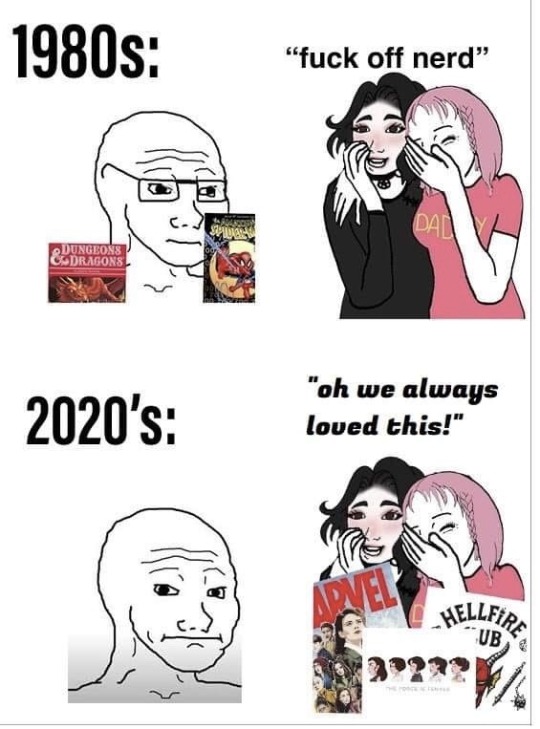
what are they vampires? is this a generational commentary or is the implication that this has been the same women since 1980? is everyone in this meme stuck in limbo
#shadowposting#like Oh Women These Days Are Pretending Like They Always Liked Nerd Stuff Ooohh#okay well those are different women. teenage girls in 1985 and teenage girls in 2022 are not the same people#a teenager in the 2020s did not exist in the 80s. like they were not existing people yet. yet to be conceived. entirely separate generation
7 notes
·
View notes
Text
How did Youth Culture become a lifestyle?
Gabriela Bezerra
As Youth Culture became less strictly gang-oriented, the lines of an age limit for that culture became blurred, and Youth Culture turned into part of a lifestyle, apart from a lifestage.
The concept of youth and teenagers, as a transition between childhood and adulthood didn’t exist until the 20th century. Events like shifting from an agricultural economy to mass-production industries, which did not require specialized workers, in the U.S and some European countries or the post-war economic boom in the later half of the century. However, Youth Culture was not always the main pop culture and mass media products we see today, though they were often generalized as one group with one culture.
Teen Revolution with the rise of the mass media, consumerism, which, for teenagers who had an income, shifted from necessities to leisure products, and American influence all contribute to the consolidation of the Generation Gap. American music genres, like Rock ‘n’ Roll, were spread worldwide and had a big influence in other countries. Starting in the 1960’s Youth Culture was very gang-oriented, with many subcultures and countercultures to it, like Hippies. In the 1970’s there was the rise of more controversy and political movements, like the Punks, that had bands like The Sex Pistols as representatives of Punk Rock in the music industry, or Glam Rock, that had David Bowie as a representative in media, and explored and challenged sexual and gender identities and fluidity, something that continued being part of Youth Culture throughout the years.
We see a pop culture and more generalized Youth Culture spread by the media in the 1980’s, when consumerism and American culture were at the forefront of the spread of pop culture, and the “good times of the 80’s” were shown and idealized by media and the music industry, in opposition to the unemployment the young downside of the social scale was going through. In the 1990’s the rise of Rap and Hiphop, along with street dance, street wear and graffiti reinforced the urban style and culture. In the fashion industry the Super Models in classy and elegant designer brands were the center of attention, and in the media, celebrities’ bodies, like Kate Moss and Gia Carangi, were idealized as a beauty standard, the Heroin Chic style, that was catered to young people. Pop girl bands, like the Spice Girls, and the “Girl Power” movement became famous worldwide.
The lines between youth and Youth Culture were blurred and, as the subcultures seen in the 60’s and the 70’s were picked as lifestyles by adults and teenagers, what became Youth Culture was the pop culture spread by the media, which was mainly served to the middle and upper class youth. In the 21st century,the development of social media, the easier access to the internet, we see music, fashion and beauty idols such as Rihanna, Beyoncé, Lady Gaga and Taylor Swift, or celebrities like the Kardashians. They’re actions, like world tours, music video’s aesthetic, clothing items, body features, or social media aesthetic all have a powerful influence in fashion and beauty trends. The 2020’s Youth Culture was very affected by the Covid-19 Pandemic. With quarantine and lockdown restrictions the only way to be in touch with many young people at the same time was through the internet, apps like Tiktok and Twitter made certain fashion trends viral, and, based on their algorithm, we saw the rise of different aesthetics and styles such as Clean aesthetic Cottagecore, Kidcore, and the comeback of Balletcore, Y2k and 90’s SuperModel style.
1 note
·
View note
Text
How did Youth Culture become a lifestyle?
As Youth Culture became less strictly gang-oriented, the lines of an age limit for that culture became blurred, and Youth Culture turned into part of a lifestyle, apart from a lifestage.
The concept of youth and teenagers, as a transition between childhood and adulthood didn’t exist until the 20th century. Events like shifting from an agricultural economy to mass-production industries, which did not require specialized workers, in the U.S and some European countries or the post-war economic boom in the later half of the century. However, Youth Culture was not always the main pop culture and mass media products we see today, though they were often generalized as one group with one culture.
Teen Revolution with the rise of the mass media, consumerism, which, for teenagers who had an income, shifted from necessities to leisure products, and American influence all contribute to the consolidation of the Generation Gap. American music genres, like Rock ‘n’ Roll, were spread worldwide and had a big influence in other countries. Starting in the 1960’s Youth Culture was very gang-oriented, with many subcultures and countercultures to it, like Hippies. In the 1970’s there was the rise of more controversy and political movements, like the Punks, that had bands like The Sex Pistols as representatives of Punk Rock in the music industry, or Glam Rock, that had David Bowie as a representative in media, and explored and challenged sexual and gender identities and fluidity, something that continued being part of Youth Culture throughout the years.
We see a pop culture and more generalized Youth Culture spread by the media in the 1980’s, when consumerism and American culture were at the forefront of the spread of pop culture, and the “good times of the 80’s” were shown and idealized by media and the music industry, in opposition to the unemployment the young downside of the social scale was going through. In the 1990’s the rise of Rap and Hiphop, along with street dance, street wear and graffiti reinforced the urban style and culture. In the fashion industry the Super Models in classy and elegant designer brands were the center of attention, and in the media, celebrities’ bodies, like Kate Moss and Gia Carangi, were idealized as a beauty standard, the Heroin Chic style, that was catered to young people. Pop girl bands, like the Spice Girls, and the “Girl Power” movement became famous worldwide.
The lines between youth and Youth Culture were blurred and, as the subcultures seen in the 60’s and the 70’s were picked as lifestyles by adults and teenagers, what became Youth Culture was the pop culture spread by the media, which was mainly served to the middle and upper class youth. In the 21st century,the development of social media, the easier access to the internet, we see music, fashion and beauty idols such as Rihanna, Beyoncé, Lady Gaga and Taylor Swift, or celebrities like the Kardashians. They’re actions, like world tours, music video’s aesthetic, clothing items, body features, or social media aesthetic all have a powerful influence in fashion and beauty trends. The 2020’s Youth Culture was very affected by the Covid-19 Pandemic. With quarantine and lockdown restrictions the only way to be in touch with many young people at the same time was through the internet, apps like Tiktok and Twitter made certain fashion trends viral, and, based on their algorithm, we saw the rise of different aesthetics and styles such as Clean aesthetic Cottagecore, Kidcore, and the comeback of Balletcore, Y2k and 90’s SuperModel style.
1 note
·
View note
Text
(Crossposting from Twitter to get my thoughts out in longform.
One of the writers I follow put forth a question to their transmasc asking what sort of representation they wanted to see in fiction, and a bunch of thoughts I've been having about the progression of queer YA sort of condensed all at once.)
I've been thinking lately I don't see much queer lit with characters in the questioning/revelation/coming out stages anymore. Like, I get for a time all we had was the Coming Out/Trans 101 novel, but I think we overcompensated.
It's like there's an assumption that The Internet Exists now so everyone knows about trans people and can figure themselves out once they're old enough to google, and that's just... not the case? Gender is complicated, and people are in all sorts of situations.
Mostly I feel like we jumped from the 90s Coming Out novel to the 2010s Already Out novel and completely skipped my generation of "I know what gay people are but I don't know how to be one"
Or maybe YA is always just Like That with adults trying to mush their experiences into contemporary settings in ways that never quite ring true.
Queer YA in the 90s/2000s: "I have a secret...I think... I might be...gay. I am The Only Gay In Existence, except for the Hot New Guy who I fall madly in love with, even after we experience A Homophobia, so I guess there are 2 gays in the world. (Trans? What's that? Don't know her.)"
Queer YA in the 2010s: "We are going on adventures, we just happen to be two people of the same gender falling in love. Yeah, I've heard of homophobia but we don't care about that here. Also, did you know trans people exist?"
Queer YA in the 2020: "what up nerds, me and my Entire Pack Of Queer Pals are here to fuck shit up"
You know what, now I think about it, each of these trends is less indicative of the state of being a queer teen at the time and more a reflection on the older generation's wish fulfillment fantasies.
Queers growing up isolated in the 80s and writing in the 90s wished there had been even One Other Queer with whom they could have shared their experience with. Maybe even fallen in love with.
Meanwhile actual queers of the 90s/00s were like "yeah I know the Other Gay Guy at school and I don't really like him." They wrote the '10s novels from wishing they could have had queer stories that weren't just Coming Out angst, just "normal" stories with queer characters
And I'm guessing the 10s generation reading those stories were like "what's with this normie bullshit? I'm not a boy who 'just happens to' fall in love with another boy, I have a queer identity and a community even if I'm not in a relationship." They're less interested in mainstreaming and more interested in celebrating queerness in all its ambiguity and complexity, especially gender.
It'll be interesting to see what the next decade brings. I'm guessing a greater attention to homophobic backlash. My (00s) generation of teens dealt with a lot more implicit and unspoken queerphobia, which is probably why our generation of books just ignored it. We kind of just hoped it would go away on its own, didn't we? Maybe the current teens are reading the current crop of queer books like "love your enthusiasm for happy queers, but that's super not realistic and I don't want to pretend it is."
I mean I guess I could like. Ask a Real Live Teenager. But also the things you experience as a teen and the way it gels into something you write about a decade later are very different, so only time will tell for sure.
And yes, obviously queer YA writers are a variety of ages, and their works grow and change and are influenced by a variety of factors. But also, Alex Sanchez is still out here writing the same queer narrative he's been writing since the 90s.
So that's why I feel like my 00s experience of being a queer teen is missing from YA lit, because we skipped from Coming Out to Mainstreaming and missed the awkward in-between stage of "I know more than one gay person but I don't know how to form queer community."
And it's extra complicated because my experience of being a queer teen was unconsciously surrounding myself with other queer teens while we all pretended to be straight and that's a really hard thing to depict in literature in an interesting way.
Add to that the fact that a lot of people my age were like "uhh... I guess I'm gay?" in the 00s but then later came out as things like nonbinary and asexual and things that we had no way of knowing about as teens.
Anyway setting YA in the near past like the 80s or 90s is like, a Thing now I guess, but I'm not actually surprised no one has tried to depict this in fiction because how even the fuck would you? I see it in memoirs here and there, because I'm now old enough that peole my age have memoirs I guess. But in fiction?
The closest thing I've found is the anime "Monthly Girls Nozaki-kun," which is a probably unintentional but strangely perfect depiction of teens who are all some sort of queer and haven't realized it yet, but that is very much a fan reading. I've never seen it done with intent.
IDK, this was maybe just a very long way of saying I wish we had more Coming Out novels that were actually complicated and nuanced and maybe showed someone cycling through several identities, instead of just being a vehicle for Queer 101, but also I understand why the Coming Out Novel is kind of dead.
0 notes
Text
Jake Evans on the Fear and Loathing of Commitment.
Have you ever found yourself at the gym in absolute agony wishing to yourself that your workout could instead function like an 80’s movie montage? Each workout last's only seven seconds before quickly cutting to the next one, all while sweaty arena rock blasts in the background. It would rule and we would all save so much time and energy, let alone having an excuse to wear leg warmers again.
Sadly, reality doesn’t offer us convenient montages when we want to expedite the harder parts of life. Instead, we’re forced to go through every painstaking second ourselves, arriving at each destination through our own decision-making and hard work. Jake Evans knows this. While he would have greatly appreciated a training montage for his professional journey, Evans has had to experience every second of hard work and sacrifice for himself. Now as a game developer for Facepunch studios, he finds himself in a profession that was once a distant dream. He didn’t let the long journey break him, and because of that, he was able to bring his dream to life.
The Beginning
Jake Evans, now 29, first began his game development journey 14 years ago. The internet was the wild west compared to what it is today, as titans such as Facebook, Reddit, and Twitter either didn’t exist yet or were in their digital infancy. While others were busy playing flash games or systemically abusing forum boards with bad music opinions, Evans was busy customizing his personal space. Myspace was at its peak in the mid-2000s, and for good reason too. It was a space for self-expression and customization where one could create their own webpage without hosting a domain.
This was especially true for Evans, who suddenly found himself thriving in this new and exciting community. Before he realized it, he was doing semi-professional web development work as a teenager. “We created a few websites where people could grow their MySpace friend count and customize their profiles with designs and whatnot. Eventually, we got so good at it we had multiple profiles with tens, even hundreds of thousands of friends (nowadays you call them followers).”
Evan’s journey was just beginning. For a kid who grew up in poverty, often buying his own food and clothing just to get by, it was a long and daunting road to personal success. A long and daunting road he would have to walk himself.
The Process
After graduating high school, Jake Evan’s career journey was temporarily put on hold. He now found himself working in the oil fields of North Dakota far far away from a computer. It was grueling work that demanded everything from his body and mind, consuming every aspect of his life. Time, energy, and health were all running out at an alarming speed. “I was working 100 hours a week, 7 days a week, 28 days at a time, then getting 14 days off. Did that for about 4 years before realizing the money isn't worth the time”.
Time is money, and Evan’s needed more of it. After he quit the oil fields, he fully committed to developmental work. He shifted his focus from web development to game development and began to educate himself in the field. This wasn’t easy, and it required a lot of time and sacrifice. As Evan’s himself stated,“most of the time between 2014 and 2020 was spent getting educated in game development rather than focused on creating and publishing this game...A lot of sacrifices were made in the journey.”.
Spending a half-dozen years learning and working in a field with little immediate financial return was extremely difficult and came at a great cost. “I lived nearly homeless for years as I taught myself how to create games, and often wondered whether it was ever going to work out. Many indie developers go through the same shit, many never catch a break.” Evans was now far along in his career's journey, especially compared to his simple origins those many years ago in high school. He was never intimidated and it showed.
His work ethic and desire had led him much farther down a road that previously looked far too long. He crushed fear, and it was paying off.
Reaching the Goal
Now in 2021, Evans has positioned himself as an expert in walking long roads. He created and published his first game to Steam in 2018, which has maintained positive reviews and sold thousands of copies. In 2020, he recreated surf and bunnyhop mechanics from Source Engine into a standalone game that was published the same year. He also secured a position at Facepunch studios, notable for games like Rust and Garry’s Mod, while also serving as a consultant on game programming and development for a variety of large youtube channels.
Yet even with all of these accomplishments under his belt, Evans knows that the journey is far from over. As he continues to publish more games and acquire more skills, he has become comfortable in the process. Time, energy, and personal sacrifice are vital parts of any long journey, but Evan’s serves as a prime example of how none of those things should keep you from your goals. Even if your goal isn’t crystal clear, Evan’s doesn’t want you to be discouraged. “I
didn't know what I wanted to be even when I started making games. I just started creating and never stopped.”
So as you find yourself at the beginning of any long road towards a goal, keep in mind the possibilities. Nothing is out of reach if you’re willing to walk the walk. No one knows this more than Evan’s, whose rock-hard calves have walked many miles to get to where he is today.
Check out Jake Evans (crayz) on instagram and twitter.
Read more at: https://hustleinformer.com/jake-evans-gaming-commitment/?feed_id=42&_unique_id=647b918d244b4
0 notes
Text
My Favorite Underrated WLW Cinema
To keep this as a memory, after a lot of deliberation, I’m creating this list of all my favorite Sapphic movies of all time. Note that it is purely subjective to me, and they aren’t necessarily big-budget, blockbusters, or period dramas. I obviously love films like Carol, the Handmaiden, etc. a lot, but personally, I love indie films. So, these are mostly Indie films and are quite underrated. All of these have beautiful poetic cinematography and heart-touching storylines. In no particular order:
1. The Half of It (2020, USA):
Probably the most famous film on this list, this is Alice Wu’s second directorial venture after a long hiatus post Saving Face. It’s about a seventeen-year-old girl named Ellie Chu who is basically a dark academia Tumblr lesbian. She liked the pastor’s daughter but well the pastor’s daughter is very pretty so many boys like her. One of the boys approach her to write a love letter coz lesbehonest we’ve been there done that (I mean I’m 100% Ellie minus the swag) and a lot of things happen. Just watch the film to know more. It's beautiful, deep, and sweet and has some tidbits about religion and queerness. Oh, and cute platonic friendships.
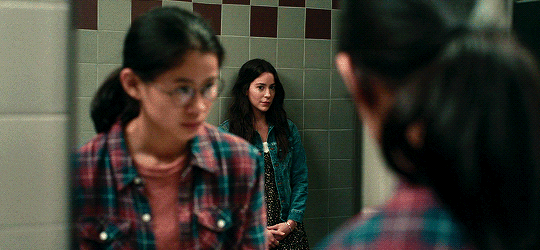
2. Desert Hearts (1985, USA):
The shots in this film is literally so ahead of its time, it feels like a period film honestly. Plus, the costume, the landscape- if you’re an 80s fashion buff, this is the best thing that could happen to you. Not to mention the leads are extremely beautiful. It was also groundbreaking for being a film of 1980s that didn’t shame lesbians and made them own up their sexualities. Also, if you like older women, I gotchu.

3. Moonlit Winter (2019, South Korea)
This was truly unlike any sapphic film I ever watched. It’s basically about a teenage girl discovering her mom is gay and helping her get back to her lover. Like? Omg? Also gay Asian middle-aged lesbians and repressed emotions? I’m bawling my eyes out. The lingering shots were especially beautiful and the strengthening of the mother-daughter relationship throughout the runtime as the mother gradually got comfortable in acknowledging her sexuality hit home. Like no, my mother isn’t gay but who doesn’t have mommy issues. Right….. Right?

4. Water lilies (2007, France):
Have you had feelings for your senior? Did you have gay panic in your changing rooms? Did you have homoerotic tension with women in tight swimming costumes? Did you have internalized homophobia? This film is all that and Celine Sciamma and Adele Haenel’s first film together so wink wink ultra super gay.

5. Shiva Baby (2020, USA and Canada):
It’s about a miserable bisexual girl who has to deal with her sugar daddy, her ex-girlfriend, her parents and the outcomes of her pathological lying while her sugar daddy’s wife ( Diana Agron I KNOW) poses a threat to her existence. It’s a comedy and it’s very funny. The set ups were hilarious, the plot twists were un anticipated and the horror music score was so unconventional but it fit perfectly.

6. Our love story (2016, South Korea):
It is probably the most realistic portrayal of a queer couple in their twenties on film. The messiness of it, the misunderstandings, having to hide the relationship from disapproving parents. It is very cute and heartwarming at times, with the lingering shots of typical Korean indie films, and at times it gives you a reality check that relationships are very messy.

7. Saving Face (2004, USA):
Alice Wu’s first child, this is the best lesbian rom-com to exist and that’s on period. The situational comedy, the lovely relationship between the two leads, and a happy ending, Happiest Season could never. It also deals with very serious topics like pregnancy at an older age and homophobic parents with so much sensitivity and light humor. A totally feel-good movie.

8. Kajillionaire (2020, USA):
Evan Rachel Wood was my bisexual awakening and the woman is horribly underrated in film. She portrays this odd girl in this film who has been raised by her con man parents to just cheat the system and engage in petty robberies. Her journey of breaking out of her toxic parents and finding someone who cares for her gave me goosebumps. The movie is brilliantly written and directed by Miranda July and its quirky aesthetic and satire of the system makes it one of a kind. Also Gina Rodriguez is so cute.
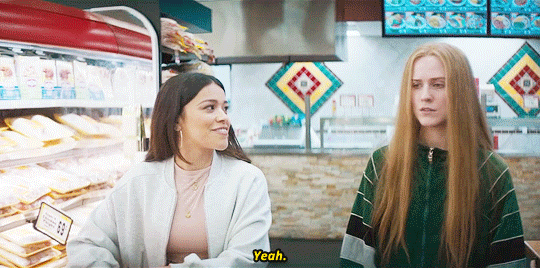
9. Fire (1996, India and Canada):
This film overcame a lot of hurdles and managed to provide authentic queer representation in the Indian Demographic as early as 1996. It also ends on a positive note which is really commendable. The acting, the scriptwriting, the themes of yearning, confusion, and coming to terms with your sexuality against the dogmatic and patriarchal society of India makes this film a must-watch. Especially if you’re South Asian.

10. I care a lot (2020, USA): This dark comedy portrays the sapphic lead to be a villain but I honestly loved the film for a multitude of reasons. The plot aka Rosamund Pike’s suits and Eiza Gonzalez’s sunglasses were pathbreaking. Jokes aside, the plot was really unique and it treated the sapphic couple like a regular one which was refreshing. On top of that, the age difference in the couple made my heart rate increase a lot so there’s that. The movie in itself is truly brilliant oh yes and Tyrion Lannister did so well I love him.

This list is in no way exhaustive. It doesn’t have enby and trans masc lesbians, and they are still seriously underrepresented in movies. We also need more black and brown women to portray sapphic relationships. I’m Indian and Fire was literally the only queer movie I had watched as a kid. So we mostly grow up with limited to zero representation. I hope it’ll change soon and people will stop making lesbian period dramas where nobody ends up happy.
Tell me how you guys liked these movies
#lgbtq community#sapphic#wlw film#women loving women#film#queer representation#queer film#wlw love#half of it#saving face#kajillionaire#i care a lot#women
2K notes
·
View notes
Text
Forever Separated
Based on this request: “Reader is Luke’s girlfriend in the 90’s and is at the gig at the Orpheum and hit by a drunk driver and dies instantly. She and the boys come back as ghosts 25 years later. She’s there for everything that goes down with Julie, Willie, and Caleb.”
masterlist
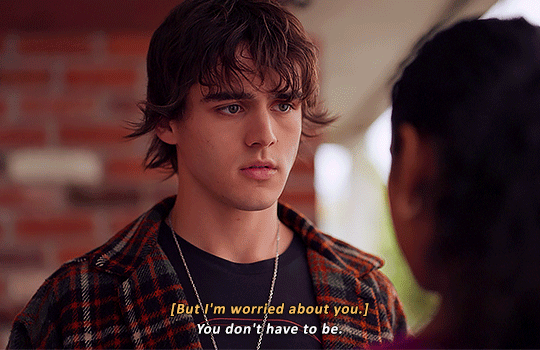
Your fingers tap absentmindedly on the steering wheel as you careen through the streets. It’s late now, the beacons of headlights guiding you down the asphalt. There’s a grin on your face that won’t seem to go away- your boys are playing at the Orpheum tonight. The Orpheum. That’s been their dream for what feels like forever. It doesn’t even seem true.
By your boys, you mean Sunset Curve, of course. The motley collection of four teenage boys with dreams bigger than the world and the need for a chance to prove themselves. You stumbled across them at a small jazz club, at what had been one of their first performances. It hadn’t been long after that when you had become a friend of the bandmates, and an even shorter time before you fell in love with Luke. When you started dating, it felt like everything was finally falling into place.
You had always known that they would make it, even when they seemed to doubt it themselves. You knew they had gathered regrets over the years- Reggie with the fracturing of his family, Alex with his parents’ lack of acceptance of him, and Luke with the way he’d run out on his mother. You had seen it in their faces- if their band never got off of the ground, they would continue to doubt themselves for the rest of their lives. There had been times when you thought that it might be over for good, that they’d be done for before they even got the chance to get started. Yet here you are now, driving towards their gig at the Orpheum.
You’re only a couple of streets away. You’re practically shivering with anticipation at the thought of it- all of their dreams and hopes, finally come to fruition. You, however, are running a little late despite your best interests, and so your foot involuntarily presses down on the gas. You’re not speeding, always careful to follow traffic laws, just making sure you’re not going to be as late as you fear.
It only seems fitting that something would go wrong on this night of nights. Thinking back, you’re almost glad it happened to you and not someone else. You had this awful feeling that something was going to happen to ruin this gig, and maybe if it happened to you it would protect the boys and let their show run on uninterrupted. When you pass through the intersection, this thought may have protected you.
When you see the truck out of the corner of your eye, you continue driving. You know it will stop, it has to. Maybe it’s the way you’re eager to see your boys again, or the fact that the light has been green for a long time now and there’s no way the driver could miss the glaring red in front of him. Maybe it’s just because you feel sheltered by this bubble of hope that comes with seeing the boy you love play at the Orpheum. Regardless, there is nothing you can do to avoid the truck, and you keep expecting that it will stop until it is inches away from you. Then you finally realize that there’s no getting out of this, and it is only then that it is too late to act.
You’ve seen car crashes in the movies. They’re always a blazing whirl of headlights and screeching tires, a hailstorm of broken glass that reflects the light in the most beautiful arc around you. It will be slow, like time itself crawls to a stop, just in time for your head to fly back in a graceful motion. Then it will speed up again, and just like that it will be over.
This is nothing like that. It is over an instant, no beautifully devastating moments. You’re not a marionette to be hung delicately in the air, your strings are cut within seconds. You do not have time to see the poetry in your last moments, they’re already over. All you manage to see is a quick glimpse of a bottle resting in the driver’s hands, a tremendous impact like the very shaking of the earth, and then there is nothing at all. No orchestras reach a momentum, no lens flares pierce the night. There is everything, and then there is nothing. It is painfully ordinary.
There is one feeling that seems to surround it all. A pain, numb at first and then growing to a fever pitch. You don’t know when you wake up, only that it is much later. There’s someone dressed in a paramedic’s uniform standing over you, the piercing din of an ambulance somewhere behind you. You want to form words together and ask who it’s for, but the answer comes to you the second you realize you can’t move a muscle. It is for you. You are the one in need of saving.
The paramedic is standing over you, shouting something about a drunk driver and two casualties, the driver and the girl right here. You want to stand up, to shout to the world that you’re alive and fine. But for some reason, you can’t move at all. You can’t say anything except feel the last of your pulse die from your veins. Distantly, you feel a raw anguish creeping up in your throat. Luke and the others are still waiting for you at the Orpheum. Who will tell them that you’re gone?
It should have been over then. You died, certainly. You bled out on the streets and ceased to draw breath. Indeed, you had the classic fading of color and acceptance of the darkness just like everyone else. It appears that you will only have access to the clichés of the stories in death. It’s oddly fitting. Regardless of the beauty of it, you died. End of story.
Or at least, it should have been the end. Yet, you find yourself standing again, waiting at the back of a crowded room. You stare at your hands, at your body, which appears unharmed. Your eyes travel from yourself to the people in front of you. Your parents sit in chairs, their backs to you. They’re looking over a photo album, crying softly. “She was so young. She could have done so much more. I miss her, even though it’s been so long.”
You step forward, but the ground makes no sound underneath your feet. “Y/N wouldn’t want you to be sad. She would want you to remember her with happiness, not with tears, right?” Your mother nods sadly. “I can’t seem to help it, though.” An icy chill runs through your veins as you realize what’s happened. All you can think about is that you need to get away from here, somewhere where you won’t be surrounded by people mourning your death.
And then you’re gone. One minute you’re in your home, the next minute you’re standing on the sidewalk outside. Although you look around frantically, no one notices your sudden appearance. No one, that is, except one boy. He’s riding a skateboard, long dark hair tucked underneath a helmet. He stops suddenly, staring at you. “Hey, you just poofed here out of nowhere. You’re a ghost?”
You stare at him. “You can see me?” He nods. “You must be new to this ghost business if you’ve got questions. I’m Willie, by the way.” You smile weakly at him. “Y/N. I guess I would have to be a ghost if I died in the accident.” Willie winces. “Ooh, accidents. Those hurt. I died around the early 80s, a couple of decades ago, so I know what you mean.” You stare at him. “The 80s weren’t a couple of decades ago. They were recent.”
Willie shakes his head. “Sorry, man. You must have only been brought back as a ghost recently. It’s the 2020s right now.” You shake your head slowly. “That means it’s been 30 years since I died. How is that possible?” Willie places a hand on your shoulder, and for some reason the gesture is surprisingly comforting. “Hey, not a whole lot about the ghost stuff makes sense. If you want to talk about it, though, I’m here.” You smile at him. “I’d like that a lot, actually.”
Willie ends up becoming a fast friend. He explains everything there is to know about ghosts, and the two of you have fun messing around with your ghost abilities, whatever those are. It’s nice to have someone who understands about the ghost business, and you find that in leaps and bounds with Willie.
One day, you’re lying on a grassy hill admiring the clouds when Willie poofs into existence next to you. For some reason, he looks almost flushed with excitement, cheeks pink with thrill. “You won’t believe who I met. The cutest guy. He’s a new ghost, too.” You grin over at him. “Already making moves? You’re unreal.” Willie rolls his eyes. “I played it safe. We had a nice chat. He seems very cool, in a band or something. I think he plays the drums. Alex, was in a band called Sunset Curve. I think that’s a good name for a band, and I’ve heard a lot of bad ones.”
You sit up suddenly, all thoughts of the bright afternoon sun quickly abandoned. “What did you say? About Sunset Curve?” Willie frowns. “That’s the guy’s band. Or, it was until he died. He’s about our age, played in a band called Sunset Curve.” You shake your head slowly. “That makes no sense. They should have grown up a long time ago.” Willie still seems confused, so you clarify. “I know Alex, and I know the rest of his bandmates. I was friends with them until I died.” You fix him with a sudden purposeful look. “I need you to bring me to meet these guys.”
Willie has to ask around, but eventually he finds Alex and discovers that they’re staying in their old studio, now inhabited by the Molina family. You thank him, setting off as soon as you can. As you stand outside the doors to the studio, you find yourself suddenly nervous. Will they want to see you? Will they understand what happened?
The faint sounds of music drifting out from the doors is what convinces you. It sounds just like them, like this is another afternoon from the 90s when you’re meeting up with Luke and the others. You gather your courage and knock twice on the doors, then push them open. You stand for a moment in the doorway, staring. The boys stare back at you. It’s funny- everyone looks the exact same, even though everything has changed.
Then there’s a voice from the back of the room. It’s quiet, as if he’s afraid to say anything lest the moment be fractured away into nothingness. “Y/N?” Luke steps forward, disbelief warring with hope in his eyes. You nod slowly. “Luke?” Luke stands still for a moment longer, then runs forward, wrapping you in his arms and pulling you close. You tuck your head into the space between his head and his shoulder, letting yourself relax once more.
After what could be ten seconds or ten minutes, Luke reluctantly pulls away. He cups your face in his hand, just staring with awe. “How are you here? We died- you weren’t at the Orpheum-” You laugh bitterly. “I died too. There was a drunk driver on the road, he hit me when I was just a couple of blocks away. I was so close, that was the worst part.” Luke nods slowly. “I remember hearing sirens. I didn’t know it was you.”
Something like guilt passes over his face, and you hurriedly shake your head. “It wasn’t your fault. You couldn’t have known. I guess you died some time after that?” Luke nods. “Just before the show. We never got to play.” A sad sigh rips from his chest, and you pull him close again. It isn’t fair, not at all. He shouldn’t have died, you shouldn’t have died. He should not have been robbed of this chance to live the dream he always wanted.
There’s the sound of a throat clearing from across the room. “You know, we’re here too. Not just Luke.” You look up, laughing. “Sorry, Reggie, Alex. Love you guys too. I’m glad we can all be dead together.” Alex flashes you a thumbs up from across the room. “Me too, Y/N. Me too.” Luke laughs now, albeit reluctantly. You squeeze his hand one more time, then step into the room, greeting the other boys.
Your gaze falls upon a figure you don’t recognize- a girl, about your age if not a year younger. She has dark, curly hair and a fascinated smile. “Hi, I’m Y/N.” The girl startles. “Julie. Julie Molina. It’s nice to meet you- you must be the girl Luke keeps talking about.” You toss a grin Luke’s way. “You’ve been talking about me?” Luke moves to deny this, but Reggie speaks up loudly. “So often. You have no idea. He’s been very sad.”
Luke glares at his friend, but you just grin, pressing a kiss to his cheek. “Well, it’s nice to feel wanted.” Luke beams at you, still thrilled that you’re here again. “Trust me, you are. I can’t believe you get to stay with me.”
Neither can you, actually. Somehow, despite the fact that you died and came back again, Luke did the same, and you can be with him again. You’ve lost everything- your family, your future, your life, but you still have him. It feels impossible, but it’s true.
This isn’t to say that life is smooth sailing from here. It turns out Luke, Alex, and Reggie have gotten themselves tangled in the mess that is Caleb’s club, and they’ve got the stamps to prove it. You find yourself holding Luke close while he spasms from jolt after jolt, forcing smiles to pretend like it doesn’t kill you every time he’s in pain. You also have to defend Willie to the rest, as he’s been your friend for a while and would never knowingly betray them. You have a feeling that Alex is pretty happy to hear this.
At last, you find the way to save Luke and save the boys- another performance at the Orpheum, this time as their unfinished business. Standing outside the building, staring up at the blinking neon signs, you can’t help but feel some strange feeling in the pit of your stomach. This feels like a sick twist of deja vu. This is how you died- waiting for the boys’ performance at the Orpheum. Staying here now, in the same position but after you’ve died, feels somehow wrong.
You try to shake the thoughts from your head, slipping inside the building to go find Luke, Julie, and the others. This isn’t like that night, you can’t die twice. Everything is going to be fine. Yet when you walk in the dressing room and catch sight of a panicked Flynn trying to calm a visibly shaken Julie, you have a feeling that things aren’t exactly smooth sailing.
Julie looks up when she sees you appear in the room. “Y/N, it’s good to see you. Have you seen Luke and the boys?” You shake your head, a crease forming between your brows. “No, not since I left the studio to let you say your goodbyes. Have they not shown up?” Julie sinks back down in a chair, hands pressed to her temples. “Not at all.” You slump against a wall. This feels like history repeating itself again- you dead, the boys not showing up to their performance at the Orpheum. No matter how many times you tell a story, it tends to end the same way.
Distraught, you wander back through the building to attempt to find the boys, but your search is to no avail. They’re nowhere to be found. You stumble through the auditorium just to see Julie taking the stage. You have a brief, wild hope that she’s managed to find them, but then you see the red rims of her teary eyes and hear the goodbye she issues to the crowd. If they haven’t shown up, then that means-
You try to distract yourself by listening to Julie sing. It brings a smile to your face in spite of yourself. Julie is a bright firecracker of a girl, and it’s been wonderful to get to know her. At least you know you have her at the end of this. Yet when the beat drops, Alex appears in a flash of sparks. You stand up, pressing forward through the crowd as if your proximity will do anything more to bring them back. Yes- there goes Reggie, and there’s Luke struggling to flicker back into existence. You send out a silent plea: bring him back, please. You can’t do this without him.
Then he’s back again, and you feel like your heart might burst. He flashes you a grin, as if to promise that nothing could separate you again. You smile back at him, finally letting yourself relax. He’s here, it’s okay. It’s all okay. When the song ends, you watch through joyful eyes as the boys stand next to Julie, clasping hands before taking a bow. There’s something wrong, though, something wrong when they disappear. Usually, you can loosely sense them when they poof away, but this time there’s nothing. Nothing at all. It’s like they’ve been erased away from the song of their lives.
There’s something pounding in the back of your heart, and you poof away to Julie’s rooms backstage. She appears there seconds later, as if she’s been expecting you. She runs over to you, stopping a few feet away as she remembers she can’t touch you or hug you as a ghost. “Tell me they’re still here. They didn’t just cross over.” You shake your head slowly. “I can’t feel them. They’re not in the building anymore. Julie, I think they’re gone.”
She nods slowly, fighting a losing battle to keep the tears at bay. “I’m so sorry, Y/N. So sorry. You just found Luke again, and now he’s gone.” You force a smile. “It’s alright. We’re just ghosts, remember? We’ve been running on borrowed time all along. I’ll meet you at the studio, alright? We can say our goodbyes.” Julie nods. “I’ll see you then.” You give her one last wave, then poof out.
You reappear outside the doors of the studio. You can’t quite bring yourself to go in, to face the empty stillness of the studio and know that the boy you love isn’t there. What are you supposed to do now? You have no idea what your unfinished business could possibly be. Most likely, you’re going to live out your endless days as a ghost, not noticed by anyone except Julie and Willie and whatever other ghosts you manage to find, forever haunted by the knowledge that the one person you’re looking for the most will never appear around the corner, never be waiting for you again. It’s like you’re back to that car crash, knowing you’ll be separated by death once more.
You hear the sound of a car pulling into the driveway and straighten up. Seconds later, Julie appears down the path, and you nod at her slowly. “Are you ready to do this?” She sighs. “It seems fitting to say goodbye, even if they aren’t here.” She pushes open the doors, letting the darkness wash over the two of you. She looks over at you. “I don’t know what to do.” You smile gently. “There’s no script. I have a feeling they’ll be able to hear you. Just say what you wish you got to say before they left.”
Julie nods. “I’m glad I got to meet you guys, and grateful to you for everything. You got me back into music, and I’ll never be able to let go of it again. I thought I’d never play after my mom, but you convinced me that I could. Thank you.” There’s a muffled voice from the back of the room, one that’s quickly shushed by two annoyed boys. “You’re welcome.” You stare. “Reggie?” You’d know him anywhere- you’ve heard that voice in band practices for the last couple of decades, even if it doesn’t feel that way.
Julie runs over to turn on the light, and your hand flies to your mouth as you see the boys crumpled in a heap on the floor, in obvious pain. “Did it not work? Did you not cross over?” Luke shakes his head, gently extricating himself from the heap of band members on the ground to stumble over to you. You catch him before he falls, holding him upright. “We won’t play with Caleb, that’s a promise. It’s not worth it like that.” You cup his face in your hands. “I don’t want to let you go. Not yet.”
Luke laughs quietly. “I’m not sure we had a choice. I love you, Y/N, no matter what. You know that, right?” You nod, letting your head fall against his shoulder. “I know.” You feel one last jolt rack his body, and somehow you know that this will be the last. This is it, the moment when he truly dies. You fling your arms around him, holding him close one last time. If you can’t have the future with him you had always planned, you can at least have this moment.
Your eyes are squeezed shut, waiting for the moment when he disappears from you forever. Yet it doesn’t come. You open your eyes carefully, then stare at him. “Luke, you’re- I think you’re glowing.” Sure enough, he’s surrounded by this golden haze of light. He smiles at you, chuckling slightly in awe. “I feel good. Strong, like I haven’t felt in a while.” Alex stands up too, as does Reggie. “Actually, I feel better too. I think you saved us. Both of you.”
You laugh incredulously. “Really? You’re not going away?” Luke presses a kiss to your cheek. “Never again. I’m not leaving you ever again.” You beam at him. “Good. I don’t intend to be with anyone else.” He laughs at that, pulling you in for a kiss. For once, you know that he’s here to stay.
#luke patterson#luke patterson imagines#luke patterson x reader#luke patterson oneshot#jatp#jatp imagines#jatp x reader#jatp oneshot#julie and the phantoms#julie and the phantoms imagines#julie and the phantoms x reader#julie and the phantoms oneshot#jatp luke#jatp luke imagines#jatp luke x reader#jatp luke oneshot#julie and the phantoms luke
230 notes
·
View notes
Text
An investigation: if supermodels are so dumb and vapid, how do they pull artistic geniuses?

This is a picture of Nick Cave and his wife leaving the inquest into their son’s death. Their 15 year old boy fell from a cliff after taking acid and becoming disoriented.

I cannot even conceive of how terrible it must be to lose a child. The drugs and the cliff make it an episode of Skins (or Euphoria for the zoomers) but that’s your little boy. It was a stupid accident and now you never get to see him again. A teenaged tragedy. Unendingly unfair.
Ghosteen, the 2019 album from Nick Cave & The Bad Seeds, is a complex, existential album in conversation with the death of Nick’s son and his feelings of loss and grief. Nick Cave is an artist - his life’s work is to share how he feels and what he thinks. What he’s expressing with Ghosteen is sorrow and longing - and some larger angst about the purpose of existence.
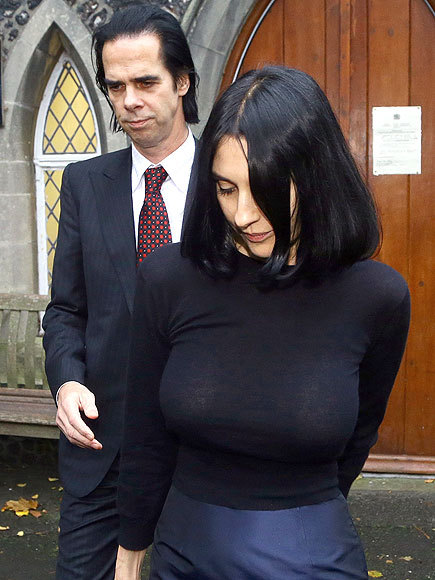
Through all this tragedy, I’m sure you couldn’t help but notice... who’s the babe with the shiny hair and the fabulous gazongas? That’s Nick’s wife, man! Susie Bick - or sometimes Susie Cave. She was a major model in the 80s and 90s. A model and an artist - it’s actually fitting.
And what’s more, Susie is the founder of The Vampire’s Wife - a label which has become super popular in the last couple of years. (Fashion people eyeroll The Vampire’s Wife because every dress has the same silhouette, but that’s out of the scope of this blog.)
There is a perception that models are are vapid and unserious. Their job is to look good, keep their mouth shut, and move merchandise. They cannot offer anything profound because their value is surface level. Men and women both push this way of thinking.
youtube
For example, when Brad Pitt was recently revealed to be dating 27 year old model Nicole Poturalski, people were disappointed. Brad Pitt has been a cultural fixture for decades - after all this time, people still find him fascinating. And they expect him to date someone who is equally compelling. Clooney married a human rights lawyer - why is Brad dating someone who makes posts like this on Instagram...

This was Lainey Gossip’s take on the new girlfriend:
A model, younger, it’s so predictable it’s almost boring.
Nice! I guess we’re all feminists until the woman in question is young and hot.
It's easy to assume the worst of a person who is unknown to us, but is beautiful and hooking up with someone famous. A million mean thoughts spring to mind. “A model, younger”. That’s scorn. You know exactly what she’s saying: hot but dumb. An uninteresting person. We know what Brad really wants her for...
If Brad Pitt is compelling to you, how compelling must Nicole Poturalski be to have won and held his attention? Brad Pitt has not been celibate in the four years since he separated from Angelina Jolie, but not until Nicole did we have confirmation of someone who he was definitely seeing. He allowed himself to be photographed with her en route to his French chateau. And what ensued was a weird story - she’s in an open relationship with some old German restaurateur and she has a son? She’s a sugar baby? Why would Brad fucking Pitt get publicly involved with someone who has a messy personal life: why hook up with a married 27 year old and weather months of stories about her open marriage if he didn’t actually like her? Why even be seen with her? The relationship is a little weird - but the reporting on it has been nasty. The new sugar baby angle which has emerged in the last week (late October 2020) is basically calling her a whore. This is the level of suspicion and derision directed at a model dating a public fixture like Brad Pitt. The notion that Brad Pitt would pay for female company or sex is patently absurd.
If our assumptions about models are correct, why do so many models end up with artistic geniuses? I don’t care about the Victoria’s Secret models who hooked up with the bassist from Kings of Leon. I’m talking about beautiful women who made it with icons, the premier humans of the past century:
MUSICIANS
Nick Cave and Susie Bick
David Bowie and Iman
Kanye West and Amber Rose
Bob Dylan and Sara Lownds
Mick Jagger and Jerry Hall
Mick Jagger and Carla Bruni
Serge Gainsbourg and Jane Birkin
Eric Clapton and Pattie Boyd
George Harrison and Pattie Boyd
Madonna and Jesus Luz
MISC. POWERFUL PEOPLE
Salman Rushdie and Padma Lakshmi
Donald Trump and Melania (lol)
Nicolas Sarkozy and Carla Bruni
Evan Spiegel and Miranda Kerr
Hitler and Eva Braun (What?! She had a brief career an artist’s model...)
Michael Jordan and Yvette Prieto
Rupert Murdoch and Jerry Hall
ACTORS (perhaps not artistic icons... but still creative and interesting)
Matthew McConaughey and Camila Alves
Johnny Depp and Kate Moss
Bradley Cooper and Irina Shayk
Bradley Cooper and Suki Waterhouse
Robert Pattinson and Suki Waterhouse
Vincent Cassel and Tina Kunakey
Halle Berry and Gabriel Aubrey
Leonardo DiCaprio and half the VS roster
Huge congrats to all the models with more than one entry on the list. You’ll note that there is a dearth of female icon/male model pairings - this is kind of interesting but not something I feel like getting into.
To some extent, the prevalence of the artist and model pairing makes sense. Men like good looking women. Rich, powerful men are high status and have access to good looking women. Plus, an artist needs a muse.
Many of the models in the list above are actually iconic in their own right. Like, when someone is having a great day on RuPaul’s Drag Race and looking sleek and skinny and flawless RuPaul might compare them to Iman. People pay $10,000 USD for handbags named after Jane Birkin.
Conversely, in the case of Amber Rose, she became the most desired woman in the hip hop industry c. 2010 because she was with Kanye. And most especially because she broke Kanye’s heart. Everyone wanted the girl from “Hell of a Life”. People point to that song as being about Kim - it was prophetic, yes, but not written about her.
Anyway. Could an icon, a legend, a genius, make it work with someone who had nothing to offer but a fast metabolism and a beautiful face? Do poreless skin and puffy lips make up for never finishing high school?
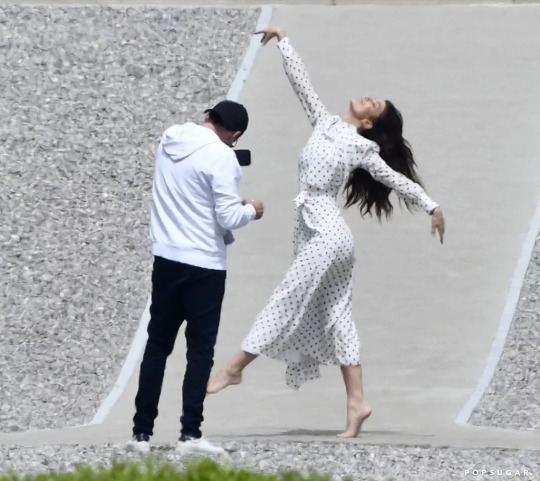
Wouldn’t being with someone superficial or unserious mean the artist was fundamentally boring in some way too? This is increasingly the assumption about Leonardo DiCaprio - seen above photographing his 23 year old model gf for her Instagram. Even Reddit mocks him for his age gap relationships with models.
And here’s where I try to make my point:
Kate Moss’ daughter, Lila, recently had her modelling debut during Paris Fashion Week. It was big news because she’s celebrity spawn - and of course her mother is one of the most iconic models ever. She was eviscerated.


On The Daily Mail, the comparisons to her mother flowed. What’s interesting is that Daily Mail readers do not like Kate Moss but they will defend her 90s modelling career with their life. They laud her bone structure, her waifish figure. An irresistible, undeniable face.
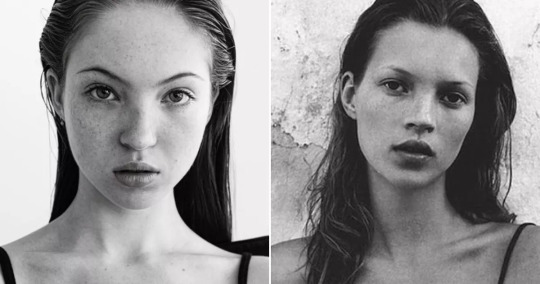
It seems silly to praise someone for the shape of their head and the way their skin fits over it... it’s not a talent, is it? Maybe it is! There is no shortage of hot girls in the world - but there may be a shortage of girls with preternatural charismatic beauty. Lila Moss (left above) is attractive - she even looks quite a bit like her mum. Perhaps in the pic above she even looks hotter than her mum (right above). But Kate Moss is more interesting: less perfect - half her eyebrow is missing, she’s less manicured. She exudes some kind of darkness, newness. Lottie Moss, Kate’s younger half-sister, is a similar story. Obviously attractive, obviously interested in modelling - but she’s lacking something.
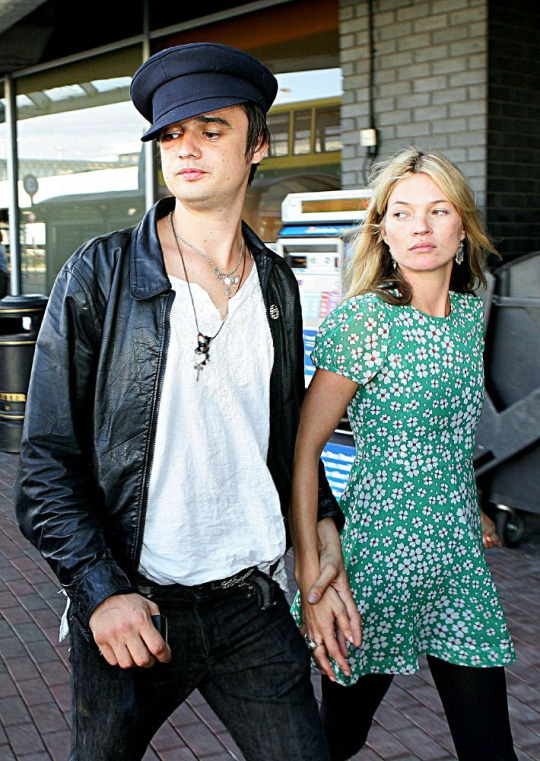
Bella Hadid came from a similar-ish background to Lila Moss (Bravoleb parents, frequent appearances on Real Housewives of Beverley Hills in her teen years, groomed by her ex-model mother) but Bella Hadid has it. She may have risen through the ranks due to nepotism and cosmetic surgery but she is someone people want to look at. She is sought after - not foisted upon us. Again, it’s not because she’s the hottest woman on the planet. She is gorgeous, but on top of that, there’s something beguiling about the angles of her face.
What’s this thing that clicks in your head telling you that Kate Moss’s face is more interesting than her daughter’s? It’s an intrusive thought: her skull shape is pleasing, let your eyes linger. A command: you will not forget that face.

Iman has it. Look at her. On meeting Iman, Bowie said: "I was naming the children the night we met... it was absolutely immediate." How many beautiful women had Bowie met in his life? How many had this effect?
Can you imagine trying to keep David Bowie or Bob Dylan interested in what you’re saying? Or Madonna? Or Michael Jordan? Most of us do not have a single thought in our head which would be of interest to these people. The models I listed earlier transfixed them. Mick Jagger could have romanced every woman on the planet - but he only wanted Jerry Hall (pls disregard affairs so I can make my point).
When a model hooks up with an artistic genius, it’s illogical to assume she’s vapid or that the icon is with her for shallow reasons. What we should assume is that she is the most interesting woman that icon has crossed paths with in a long time - which would make her very interesting indeed.
#david bowie#iman#brad pitt#nick cave#amber rose#Kanye west#kate moss#lila moss#leonardo dicaprio#bob dylan
57 notes
·
View notes
Text
Deleted scenes and all that jazz!
Today, I’ll going over scenes that were cut from movies/shows/even comic for reasons and if they’ve been found or not. This won’t be as detailed as my Saki post was, mainly because there’s a lot of ground to cover, but I still hope that you enjoy!
****
‘Land Before Time’ & ‘All Dogs Go To Heaven’
I placed these two together because:
A) both are made by Don Bluth
and B) the main reason for why most of them were cut was for being ‘dark’.
Let’s start will ‘All Dogs Go To Heaven’, as that list is shorter than ‘Land Before Time’s list.
‘All Dogs Go To Heaven’ has one found scene while the other is still lost.
The found scene is Charlie (the main lead, German Shepherd) having a Nightmare of him in Hell! With the devil, little demons biting at Charlie, and a river of straight up blood!
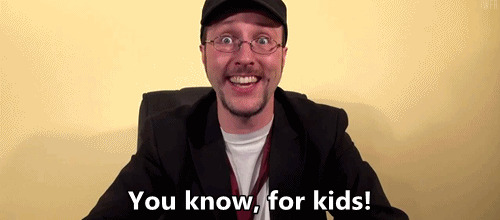
Any ways, the scene was originally slightly longer than what ended up in the theatrical cut of the film, but it got the cut to avoid getting PG rating (back when it meant something) and stick with a G. This scene has been found, and has been edited with clips from the theatrical scene into one clip, and the link to that scene is below, though the added in sections are of lower quality as they were recorded on something else:
https://www.youtube.com/watch?v=Gr7khtV7GAs
The completely lost scene is a scene of Charlie getting RUN OVER WITH A CAR. (insert failing gif I entered above here).
The original scene showed the action happening, as opposed to just showing the aftermath. People thought it was found back in August of 2020, but that was found to be a hoax in October of the same year.
Don Bluth is the only one with the extended cut of the film, and it’s on him on whether or not it gets shown to the public eye.
Now ‘Land Before Time’ has a ton of scenes cut! One of which could have been Little Foot (main character, dinosaur)’s dying, the extension of the fight scene is cut though. Fun Fact with that, they had to get Child Psychologists to watch that scene as to what they should do with it, and that screening is what lead to the narrator and the character named Rooter to be added.
The actual cut scenes include an extended chase scene with the Sharptooth, an extended intro to Spike, dinos not sharing their food with the young heroes, an added scene, a travel montage, and a lot more but there’s a ton!
The studio was responsible for the reason why 11 whole minutes were cut from the film. They were so worried about scaring/traumatizing the children who would watch the film with their parents.
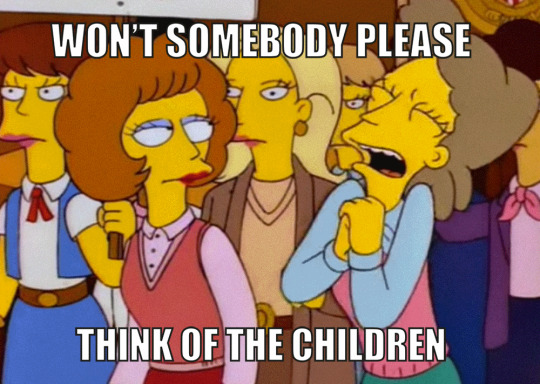
At this moment, only the cells of the scenes have been found which is a shame because some people got all up in arms about making children scared. But in my humble opinion, fuck them kids. Make your movie the way you want to!
CURRENT STATUS:
‘All Dogs’; Partially found
‘Land Before Time’; Mostly lost
***
‘A Death In The Family’- Robin Lives ending
Some context for this is, back in the late 80′s there was a Robin named Jason Todd whom was hated by some fans, he did have his own, but not as much as Dick. I’m not sure of the exact reasons, maybe it’s because Jason wasn’t the much beloved Dick Grayson.
Regardless of the reasons why Jason was so hated, DC made the move to set up two call numbers for fans to call in and vote. One number for Jason to live, the other number to let him die; end of the day it was a publicity stunt that ended with Jason being sweet, sweet worm food. There also a rumor or something that someone called multiple times just to kill Jason. But in the words of John Mulaney:
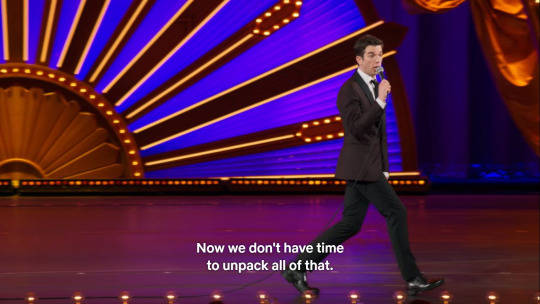
Before the call-in poll ended DC wrote up the endings, and the ‘Robin Lives’ ending got some-what done before the ‘Jason Dies’ ending won by 72 votes. Only one page got finished (from what I can find) meanwhile the others are uncompleted, but here’s a look at what could’ve been:
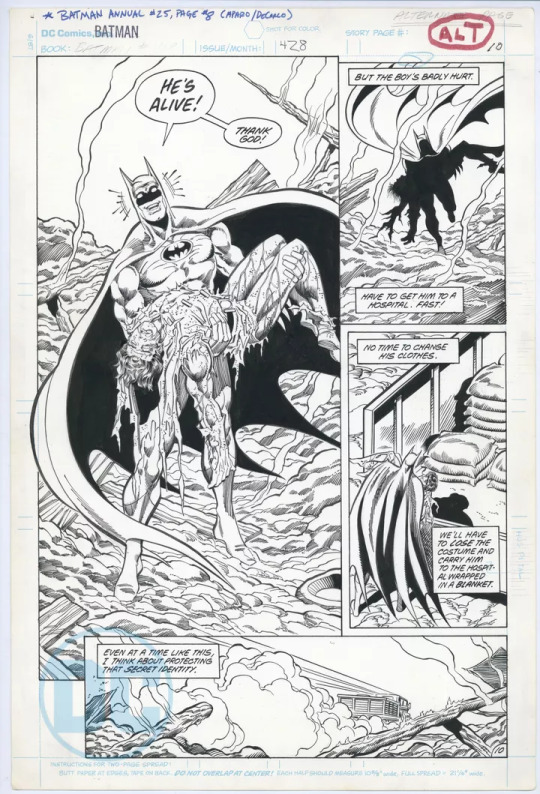
CURRENT STAUTS:
Partially found
***
Admittedly, there’s a lot that could go wrong when it comes to Television. Lost Episodes, Missing Pilots, lost audio and dubs. But, this is on Deleted Scenes, so lets just go with SpongeBob as the little yellow guy has a fair amount.
SpongeBob SquarePants deleted scenes
There are some edits made that cut lines and scenes. But I’ll go over 5 here today, one of which is a fake ‘deleted scene’.
An example is that on the first airing of the episode ‘Shanghaied’ there was a poll done to show which character (Squidward, SpongeBob, and Patrick) gets a wish from the Flying Dutchman. The first airing showed the endings that lost before the one that won; now when that episode airs it just displays the winning ending. But you can find that segment on YouTube to see the other endings.
‘Just One Bite’ had a scene where Squidward breaks into the Krusty Krab for a krabby patty, but at the front door there’s a bucket of gasoline which falls and then gets lit by a match causing a fire; in 2002 that bit was cut and you just get a zoom-in on the krabby patty vault. Now there’s a rumor that the scene was cut due to 9/11 (even though the episode was aired on October 5th), but the real reason is so kids don’t get the idea to mix gasoline and matches, you know like idiots! Here’s some screen shots of the scene and a link to the video I got these from:
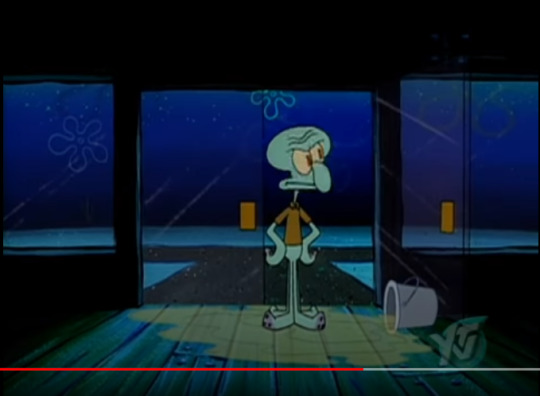
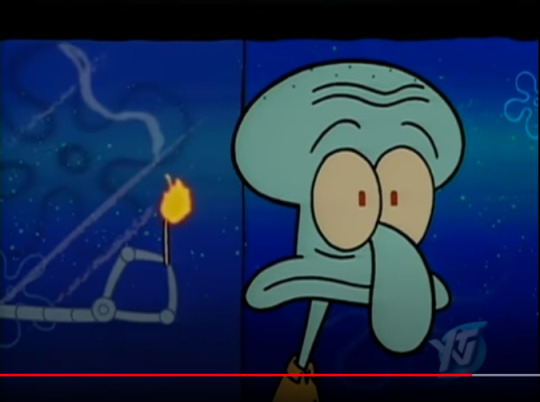
https://www.youtube.com/watch?v=x1Bu6yp-aaA
But those all examples of confirmed edits, here’s a list of unconfirmed edits.
In ‘Clams’ the name of the lipstick SpongeBob wore was changed slightly to say "Actually, it's Coral Blue Lipstick number 3" instead of "Actually, it's Coral Blue Lipstick number 4". Why this was changed I have no clue.
In ‘The Fry Cook Games’ the end shot was changed from them holding hand to them holding shoulders, the reason I found was to remove hint of homosexuality to avoid controversy. Which is odd, because that’s not the worse thing that could be shown on TV, because ‘Shanghaied’ was aired earlier that year (both versions) in March, and that episode ends with the thought that the Flying Dutchman was going to eat the characters, also handholding is something that is normal for people to do, especially friends.
There’s rumors that ‘I Was A Teenage Gary’ had a transformation scene with Squidward near the end before the cut to the fence moonlight meowing ending. The reason this rumor exists is because the transition is a simple wipe effect without the traditional bubble wipe. Some say that it could be seen in a different country, that I forgot the name of, unaltered. But it’s been debunked by someone uploading the premiere of that episode onto YouTube and there was no transformation.
CURRENT STATUS
Partially found
6 notes
·
View notes
Photo
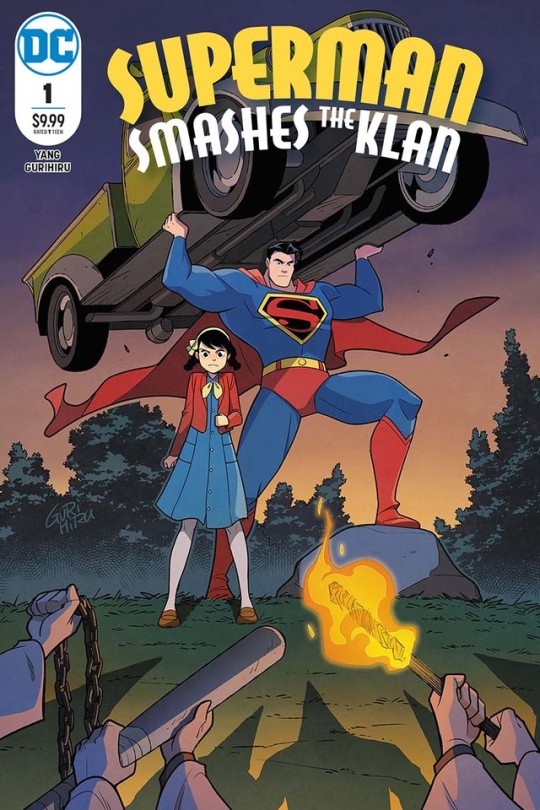
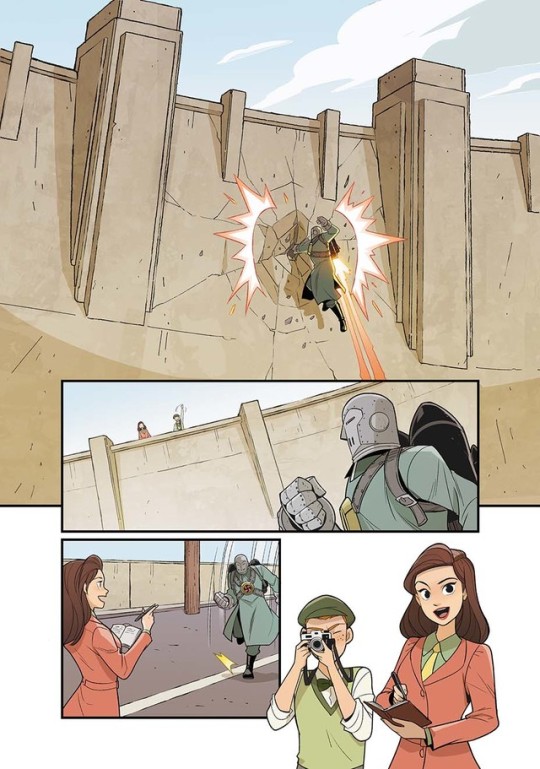

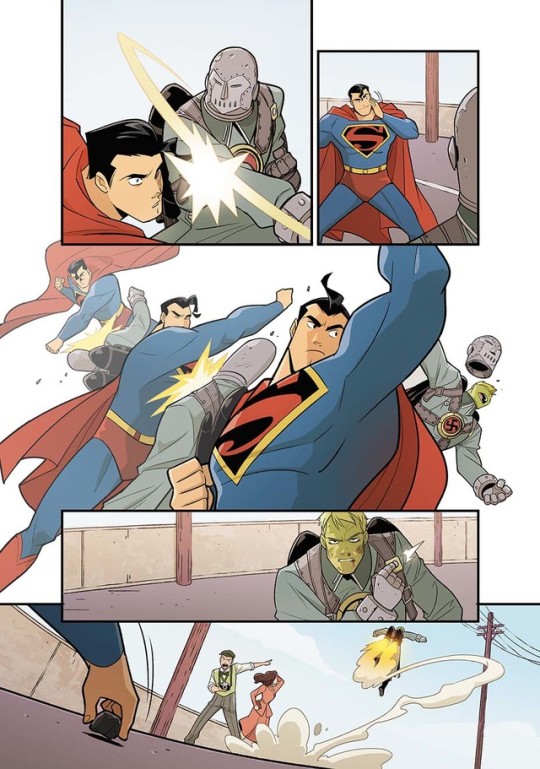
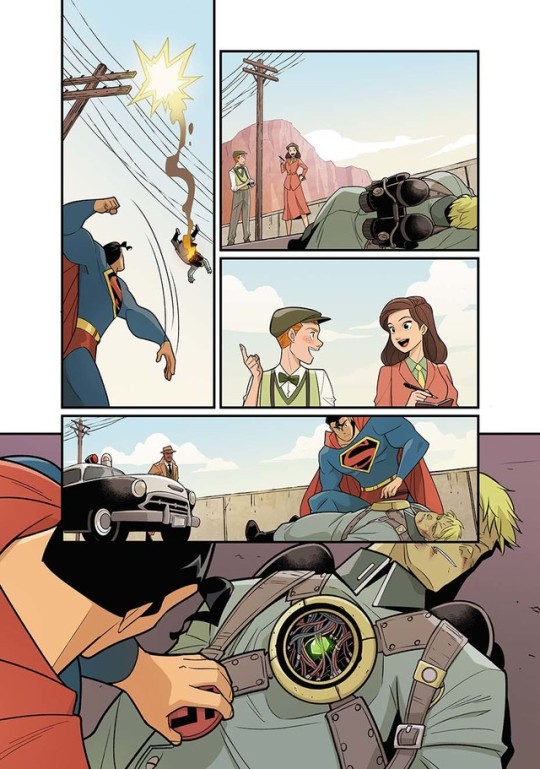
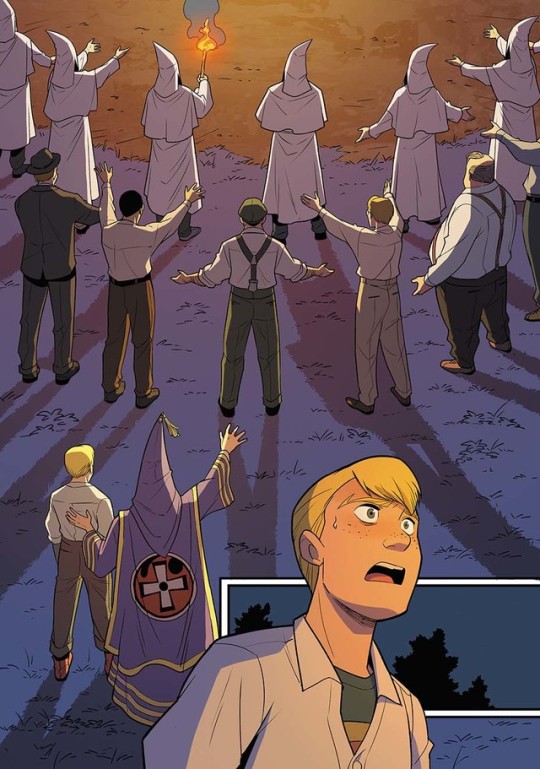

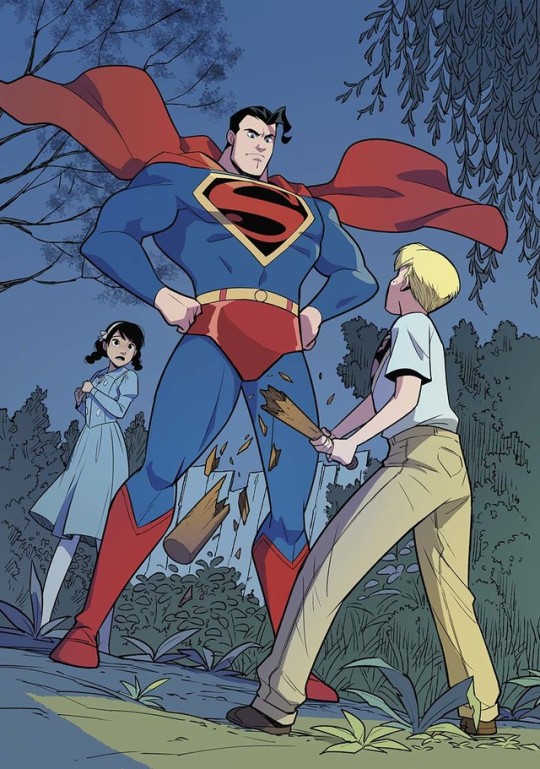
Preview Pages and Interview for SUPERMAN SMASHES THE KLAN
Superman Smashes the Klan launches Oct. 16, with the first of three 80-page perfect bound issues. The collected edition of the story will be released in 2020. DC’s official solicitation for the first issue is below, followed by artwork from the issue.
“The year is 1946, and the Lee family has moved from Metropolis’s Chinatown to the center of the bustling city. While Dr. Lee is greeted warmly in his new position at the Metropolis Health Department, his two kids, Roberta and Tommy, are more excited about being closer to their famous hero, Superman!
“While Tommy adjusts to the fast pace of the city, Roberta feels out of place, as she tries and fails to fit in with the neighborhood kids. As the Lees try to adjust to their new lives, an evil is stirring in Metropolis: the Ku Klux Klan. When the Lee family awakens one night to find a burning cross on their lawn, they consider leaving town. But the Daily Planet offers a reward for information on the KKK, and their top two reporters, Lois Lane and Clark Kent, dig into the story.
“When Tommy is kidnapped by the KKK, Superman leaps into action — with help from Roberta! But Superman is still new to his powers — he hasn’t even worked out how to fly yet, so he has to run across town. Will Superman and Roberta reach Tommy in time?
“Inspired by the 1940s Superman radio serial ‘Clan of the Fiery Cross,’ Gene Luen Yang (American Born Chinese, Boxers and Saints, The Terrifics, New Super-Man) brings us his personal retelling of the adventures of the Lee family as they team up with Superman to smash the Klan.”
I’m really curious: How did this get started? Obviously, there’s a history to the Klan of the Fiery Kross and the Superman radio show, but how did you get your in on this particular story?
I first heard about it through the book Freakonomics; they actually devote an entire chapter to the whole thing, how this one storyline in the Superman 1940s radio show dealt a huge public relations hit to the Ku Klux Klan.
I remember reading about it and learning that the incident that set the whole thing off in the original show was a Chinese American family moving into Metropolis. So, I’ve been a superhero fan since I was in the fifth grade — the very first comic I bought was a Superman comic — and I’ve been reading Superman comics since I was a little kid, and I can’t really remember any other Chinese, or Chinese American characters showing up in any of the comics that I’d read. So, it kind of piqued my interest.
Then, I started working for DC in early 2015; I did a 10-issue run on the monthly Superman comic, and after that I’ve been part of the DC comics family. I had the opportunity to have lunch with Marie Javins, who is one of the legendary editors at DC, and this came up as an idea of what to do.
I’m super excited to be working with the artists Gurihiru. I don’t know if you’re familiar with their work, but they’re so good; they’re a Japanese art studio, but it’s really just two women — one does all the pencils and the other does all the inks. Early on, the editor and I talked about going for an art style that’s just like the old Fleischer Superman cartoons but mixed with a manga influence, and I feel like they totally delivered on that. That’s exactly what they did.
The acting is so good. It looks so simple, but what they’re doing on the page is so clear.
The acting is what puts them over the top. It’s what makes them masters.
One of the things that I like about the first issue is that you show Superman as an inspirational figure not only to the "good guys," but also to Chuck, who’s the child who doesn’t necessarily understand what Superman stands for. The iconography of Superman is shown to be this nuanced thing.
One of the things about the Superman radio show, and the original version of this story, is that it actually comes relatively early in Superman’s career. He was first published in 1938, and the story was broadcast around 1946, so that’s just eight years, and he was already a worldwide phenomenon. And especially in America, he was wildly popular. But I do feel that the Superman that we all know and love today, he wasn’t quite formed yet [at that time].
There were still pieces of him that were being solidified. And as much as the radio show impacted the real world in terms of bigotry and racism, it also helped shape Superman’s character. It was at this point where Superman really did become a symbol of American tolerance, American justice and American hope.
The subject of Superman not being a fully formed character is something you play with in the text of this book, as well as the subtext; Clark is still learning who he is — his power set, his abilities and his cultural heritage. He’s literally a character in flux, just as he was at the time when the original radio show was broadcast.
The more I read about the radio show, the more fascinated I was. When Superman first appeared in 1938, he was essentially a glorified strongman, you know? He couldn’t fly. He was superfast, superstrong, he could jump high, but even then, there was a limit put on how high he could jump. It was specifically said that he could jump 20 stories.
A lot of his development actually happened in the radio show. He actually flew for the first time in the radio show; the radio show was where Kryptonite showed up for the first time. A lot of that comes from the fact that the radio show got so popular that it became a daily thing, whereas the comic was still monthly; they really needed to develop Superman — his mythology, his world — really quickly.
So, when I learned about that, I thought, this is a comic book adaptation of this old radio show — we should play with some of those elements. We should play with the fact that he doesn’t fly, or that Kryptonite is a brand-new thing.
But despite that, he remains Superman as we know him. There’s this essential Superman-ness that comes through on every page. You talked about reading Superman when you were a kid; is this something that you just inherently “get”?
My parents were born overseas, and growing up, I went through this period of time when I had a hard time vacillating between two identities. I had a Chinese identity at home, I had an American identity at school, I had two different names! When I was a kid, I did gravitate toward Superman, but when I got into my teenage years, I started getting into characters I thought were more “cool” — cool in quotes! [laughs] — but one of the things that drew me back to Superman was realizing that he was an immigrant from Krypton.
Like, all of those things: vacillating between two different identities, having two different names, having two different sets of cultural expectations. All of the realities of my childhood, all of it was encoded in Superman.
I actually have a theory about this — the reason why Superman presents himself as “perfect” is because he’s an immigrant. I saw it with my own parents; they came here and people perceived them as “foreign,” [and] they were always cognizant of this. The way they dealt with that was by trying to be perfect citizens. I think Superman does the same thing; the reason he tries to be a perfect citizen is because he knows he’s an alien. As I built a connection with the character, that’s what it became. He really became an icon for me after I saw all of this — [Jerry] Siegel and [Joe] Shuster knew all of this, they were children of immigrants. They put all of this in the character.
I think a lot of time, when we see him on cereal boxes, or whatever, we miss that, but it’s the core of the character. The core of Superman is that he’s an immigrant from Krypton.
That ties in with something else I enjoyed about the first issue — that there is so much about Superman being confused about his cultural identity. It plays against what’s going on with Tommy and Roberta’s family — it’s a connection that you’re not hitting people over the head with. You’re showing that Superman is an immigrant even as he passes as, as you said, this “perfect citizen.”
I hope so. All of that was in the character from the very beginning. His immigrant status has been there since the very beginning and is, I think, closely tied to his being an American icon. Those two things go hand-in-hand. The immigrant story and the American story are pretty much the same thing.
How much of that is present in the original story? Was the original radio serial as interested in Superman as an immigrant explicitly? Did Tommy and Roberta play such important roles, even though they were Chinese American characters?
For the radio show, I would say that the lead character was definitely Superman, and after that, the focus was on Chuck, then Tommy. Roberta, Tommy’s sister, didn’t even exist in the radio show. For me, I wanted to center the story on this Chinese American family. I really do think of this book as an Asian American book — maybe not just that, an immigrant book. By putting this Chinese American family center stage, it really highlighted the specific immigrant side of Superman.
Spinning off that, there’s the fact that this story is being published today. We’re at a point in history now where even the discussion of immigration in America is this impossibly charged topic. It feels important at this moment to have a story — specifically, to have a Superman comic — that pushes back so clearly against bigotry and racism, that does make the appeal for tolerance.
It’s not just America. You read the news about Europe, India, or the Philippines. I started this project because I thought it was something that I needed to understand. There’s a Chinese tradition that you use the events of the past as a way of talking about the present; I did come onto this project thinking about that, thinking, if I can understand the historical context that there was something about the present that I’d understand a little bit better.
One of the things that came out of this — we’re at the tail end of the third and final book right now, as we speak; I’m just about done with the revisions — and one of the things that I’ve learned is that the world learned something about tolerance after World War II. Not just America; all of us learned something about tolerance. World War II was the worst nationalistic instincts of the world come to a head — the worst instincts of our species had manifested themselves pretty much everywhere in the world. And then, this Superman story, which arrived a year after the war ended, was primed to convey the lessons the world had learned to a younger generation.
I just think that, maybe we’re so far removed from that period that we’re beginning to forget those lessons. That was the impression that I got.
Did you go into it with the idea that this was a lesson that needs to be retaught? This is, after all, a project aimed at younger readers? Were you thinking in terms of, lessons needing to be relearned in today’s culture?
To be honest, I was more going into it thinking that there were things that I personally wanted to understand better. The original storyline was very didactic, but I don’t think it was just about the lesson that was explicitly said in the story. It was also about the historical context in which that story came out. I wanted to go in to try and understand that a little bit better. I’m hoping that me wrestling with those issues comes across in the story.
You said that Chuck was one of the lead characters in the original version of the story, and one of the things that’s compelling about the first issue is Chuck’s story. He’s a character who’s leaning toward bigotry and hatred, and is pretty explicitly being taught that by his family, but you don’t write him off; there’s the implication that he can go another way, he can learn to be better.
Chuck’s a character in the original radio show, and in the comic adaptation, we kept all the big pieces of who he is. He begins as kind of a bigot, but he has an arc. To fill out that arc, I did read a book called Rising Out of Hatred, it’s written by a guy named Eli Saslow. It’s the biography of Derek Black, who is David Duke’s godson; he went from being the heir apparent of the American White Supremacy movement, and he’s the exact opposite now. When he’s not in hiding — he had to go into hiding — he’s speaking out against the views he was raised with. I read that book wanting to understand how someone could make that transition; I wanted to embed some of that in the character of Chuck.
Changing gears somewhat; you’re a National Ambassador for Young People’s Literature, and comics specifically. When you’re working on a project like this, especially on a character as iconic as Superman, is this something that you can see as a tool for new readers to use to get into, not just Superman, not just comics, but stories about things that are happening in the real world? Stories that matter.
I actually feel really lucky to be working in comics today. I think over the last, maybe 10 to 20 years, we’ve seen this shift in the public perception of comics. More and more, people are open to the idea of comics dealing with serious topics, and I hope this project fits in with that. I do think that there is a growing wave of comics that want to tackle the very heart of what it means to — do you know the book Bitter Root? It’s an Image Comics title that’s coming out right now.
Yeah, Sanford Greene and David Walker’s book.
I think that book is one of the best examples of using genre to talk about very important and serious topics. I’m trying to do something similar with this Superman book.
- Admin
981 notes
·
View notes
Text
2020 READING RECAP!
This year sucked ass in so many ways, but it might be the best year of reading I’ve ever had. I discovered so many new favorites, revisited some old favorites, and even read a few books multiple times. In this post, I’ve listed my top five favorite books from this year in the order that I read them because I don’t think I could possibly rank them against each other. They have all become some of my favorite books of all time. I’ve also included a few honorable mentions which are ranked with my favorite listed first. And lastly, I have two notable rereads of some old favorites. I also added links to each book on goodreads and bookshop so you can easily add anything to your tbr or buy it! This is going to be a long one, so buckle up. Without further ado, here is an overview of the books I read in 2020!
.
s t a t s :
reading goal: 30
total books read: 31
new (to me) books read: 22
average rating: 4.2/5 stars
.
t o p f i v e f a v o r i t e s :
Beartown and Us Against You by Fredrik Backman
(Yes, I know I’m kind of cheating by counting this as one book but just roll with me here) Beartown takes place in a tiny community in rural Sweden which is defined by their hockey club. When the junior hockey team has a chance at winning the national championships, the entire town throws their full support behind them. The burden of the pride of their community rests on the shoulders of a handful of teenage boys. For one, the pressure boils over and he commits an act of violence that leaves a young girl traumatized, and the entire community divided.
Late one evening toward the end of March, a teenager picked up a double-barreled shotgun, walked into the forest, put the gun to someone else's forehead, and pulled the trigger.
This is the story of how we got there.
These two books were downright spectacular. Over the course of this year, I’ve completely fallen in love with Backman’s writing style (we love a good onomatopoeia) but more than anything else I just adore his characters. Each one is multidimensional, and even the most infuriating residents of Beartown have their redeeming qualities. I also love the attention he gives to even the side characters whose motivations shape the story even if they only appear for a few scenes. These are stories about right and wrong, courage and fear, and most of all, humanity itself. I laughed and cried and felt more emotions than I thought was possible. Beartown was amazing, but I actually thought that the sequel, Us Against You, somehow surpassed it, so make sure to read both!! (TW: rape/sexual assault)
goodreads - bookshop (Beartown) goodreads - bookshop (UAY)
.
When Breath Becomes Air by Paul Kalanithi
Paul Kalanithi was thirty-six years old and on the verge of completing a decade’s worth of training to become a neurosurgeon when he was diagnosed with stage IV lung cancer. His memoir, When Breath Becomes Air, follows his journey from being a naïve medical student, to a brilliant neurosurgeon at Stanford, to being a cancer patient and a new father confronting his own mortality.
I began to realize that coming in such close contact with my own mortality had changed both nothing and everything. Before my cancer was diagnosed, I knew that someday I would die, but I didn’t know when. After the diagnosis, I knew that someday I would die, but I didn’t know when. But now I knew it acutely. The problem wasn’t really a scientific one. The fact of death is unsettling. Yet there is no other way to live.
This memoir caught me completely by surprise. It was assigned reading for an English class and I wasn’t expecting to enjoy it let alone completely reevaluate my perception of the world around me because of it. Kalanithi discusses learning, medicine, life, and death as he seeks to answer the age-old question, “What makes life worth living?” and the unique perspectives that he offered fascinated me. When Breath Becomes Air is an unfinished manuscript, since Kalanithi died in 2015, but the epilogue written by his wife might just be the best part of the whole book. To tell you that I was sobbing while reading it would be an understatement. The reason why this book made this list is because I finished it in March, but I still think about it relatively often. When Breath Becomes Air has left a lasting impact on my life, and I highly recommend it!
goodreads - bookshop
.
The Seven Husbands of Evelyn Hugo by Taylor Jenkins Reid
Evelyn Hugo was a Hollywood legend, but after her sudden departure from show business in the late 80s, she completely fell out of the public gaze. Now she is finally ready to tell the true story about her scandalous and glamorous life and she has specifically chosen Monique Grant, a virtually unknown magazine reporter, for the job. For Monique this exclusive is the opportunity of a lifetime. Evelyn tells her story of ambition, friendship, love, and of course each of her seven husbands. However, it becomes evident that Evelyn’s life has intersected with Monique’s own in tragic and irreversible ways.
It’s always been fascinating to me how things can be simultaneously true and false, how people can be good and bad all in one, how someone can love you in a way that is beautifully selfless while serving themselves ruthlessly.
This. Book. It was absolutely captivating. I’m honestly not even sure what to say here without giving too much away. The plot is truly a wild ride as Evelyn leads Monique through the story of her life. There are so many twists and turns: some that I saw coming and others that completely blindsided me. And that not even to mention Evelyn Hugo herself who is one of the strongest, smartest, most compassionate and deeply flawed characters I’ve ever read about. All the characters were complex and layered, but she was really something else. There were so so many emotions and so many tears and I really don’t know what else to say. I’m begging you to read this book; it will blow your mind.
goodreads - bookshop
.
A Man Called Ove by Fredrik Backman
Ove is a curmudgeon whose life is turned upside down when a young, vivacious family moves in next door. That’s it. That’s the synopsis.
Death is a strange thing. People live their whole lives as if it does not exist, and yet it's often one of the great motivations for living. Some of us, in time, become so conscious of it that we live harder, more obstinately, with more fury. Some need its constant presence to even be aware of its antithesis. Others become so preoccupied with it that they go into the waiting room long before it has announced its arrival. We fear it, yet most of us fear more than anything that it may take someone other than ourselves. For the greatest fear of death is always that it will pass us by. And leave us there alone.
You’ve seen the Pixar movie: grumpy old man meets young person who shows him life is worth living and they become buds etc. etc. Sure, you could essentially boil down A Man Called Ove to that simple plotline but it is so much more than that. It’s heartbreaking and hopeful and you’ll laugh and cry while reading it. This was the most wholesome story I had read in a long time, and I thoroughly enjoyed every last bit of it. I’ve already explained my love of Backman’s unique writing style, but this novel in particular does a beautiful job of tackling deep themes such as grief and purpose with a generous serving of humor. I also just adored the ending. While this book isn’t at all fluffy or entirely lighthearted, it gave me all of he warm fuzzy feelings I was craving. I cannot possibly recommend it enough!
goodreads - bookshop
.
Pride and Prejudice by Jane Austen
Elizabeth Bennet and her four sisters must find wealthy husbands because upon their father’s death, the entirety of his estate will be passed on to a male cousin, leaving them penniless. Conveniently, a wealthy gentleman called Mr. Bingley moves into the neighborhood, bringing along his even wealthier although most unpleasant friend, Mr. Darcy.
Vanity and pride are different things, though the words are often used synonymously. A person may be proud without being vain. Pride relates more to our opinion of ourselves, vanity to what we would have others think of us.
I definitely didn’t think that I was going to enjoy this book nearly as much as I did. The story truly is timeless, and I absolutely adored Elizabeth and Darcy. The biggest surprise I had while reading is that the humor is still funny today and of course Lizzy is fucking hilarious. She is confident, principled, and more than happy to roast the shit out of anyone who deserves it. And then there’s the matter of Mr. Darcy being so sweet and kind (after he stops being an asshole of course) and greatly contributing to the unattainable standards I have for men. It was also nice to have a socially awkward male lead, and in many ways I related more to him than to Lizzy. This book is everything I want from a romance novel plus class criticism and feminism and Elizabeth being an absolute badass. Enemies to lovers is my all time favorite romance trope and I loved reading one of the OGs. Also, I’d just like to add that Mary is the most underappreciated character of the whole novel because she’s really just trying her best. Mostly I was just completely impressed with how this novel has withstood the test of time and it has become one of my favorite classics! Please please give this book a chance even if you don’t typically enjoy classic novels!!
goodreads - bookshop - barnes&noble (this is the edition I have and it’s just so gorgeous I had to include it!)
.
h o n o r a b l e m e n t i o n s :
The Martian by Andy Weir
Mark Watney is one of the first people to ever walk on Mars, and now it seems like he’ll be the fist person to die there. A raging dust storm forced his crew to evacuate without him and he finds himself alone on the red planet with the entire world believing him to be dead. This book just barely missed being one of my top five of the year, but it was absolutely amazing. I love reading about people finding clever solutions to problems and that is basically what this entire story is. I maybe understood half of the technical science jargon if I’m being generous, but the story is plenty enjoyable even without extensive scientific knowledge. I adore Mark’s wit and mindset, and I loved watching him wriggle his way out of impossible situations with the odds completely stacked against him. The Martian is a story of perseverance and humanity, but it’s also absolutely hilarious. I highly recommend this one if you haven’t picked it up!!
goodreads - bookshop
.
Little Fires Everywhere by Celeste Ng
Shaker-Heights appears to be the perfect place to raise a family. It’s progressive, has low crime rates and is all around an idyllic bubble. This all begins to change when a single mother and her daughter move into town with a disregard for the status quo, and a custody battle erupts, dividing the community. This was a great book that ended up being surprisingly thought provoking, and I particularly enjoyed the novel’s criticism of liberal idealism. The story itself was entertaining and I think it’s definitely worth a read!
goodreads - bookshop
.
Red, White, and Royal Blue by Casey McQuiston
Alex Claremont-Diaz is the first son of the United States who finds himself intertwined in a damage control PR stunt with his sworn nemesis, Prince Henry. They have to pretend to be best friends to ensure that their confrontation at the royal wedding doesn’t get in the way of American/British relations. I’m sure you can guess where this is going. This is totally a feel-good love story, but it also finds the time to tackle real issues surrounding politics and societal expectations. I loved this book so much that I read it twice this year (the second time because I was so stressed about the election and I needed to distract myself with the fictional 2020 election that takes place in the novel) and also I’m just a sucker for enemies to lovers. (sidenote: the turkey catastrophe is one of the greatest scenes in literary history and you cannot convince me otherwise) 100% would recommend!
goodreads - bookshop
.
n o t a b l e r e r e a d s :
The Harry Potter Series by J.K. Rowling
The Jim Dale audiobooks are my ultimate self-care tool when I’m stressed or sad; I just find them to be so comforting and I can’t explain why. Because of this I probably listen to at least one of the books every year, but it’s usually just whichever one I happen to be in the mood for. But it’s been so long since I’ve listened through the entire series, and this year seemed to be the perfect time to do so!
.
Fangirl by Rainbow Rowell
This used to be my favorite book of all time. I’m pretty sure I first read it in sixth or seventh grade and I’ve reread it so many times since. I’ve been planning on rereading this book my first year of university for such a long time, and the time finally came! The book especially hit hard this semester because Cath feels disconnected from everyone at school because she doesn’t want to go to parties or make much of an effort to find friends, and because of COVID, I ended up in almost the exact same situation, (except unfortunately my roommate doesn’t have a cute ex-boyfriend who hangs out in our room). This was definitely another comfort read like the HP audiobooks and it made me feel a bit better about being stuck in my dorm room.
.
If you actually made it to the end of all that, wow, you’re a real one. I hope you got a few new book recs out of this! If you want to see the thirteen other books I read this year, you can check out my 2020 reading challenge. I read so many amazing books this year I had hard time narrowing down my favorites, so there are still plenty more great reads that aren’t included in this post. If for some reason you feel like keeping up with the books I read in 2021, follow my goodreads account for dramatic and ranty book reviews. Happy New Year, and here’s to 2021 being full of wonderful books!
1 note
·
View note
Text
How did Youth Culture become a lifestyle?
Gabriela Bezerra Ferraz dos Santos
As Youth Culture became less strictly gang-oriented, the lines of an age limit for that culture became blurred, and Youth Culture turned into part of a lifestyle, apart from a lifestage.
The concept of youth and teenagers, as a transition between childhood and adulthood didn’t exist until the 20th century. Events like shifting from an agricultural economy to mass-production industries, which did not require specialized workers, in the U.S and some European countries or the post-war economic boom in the later half of the century. However, Youth Culture was not always the main pop culture and mass media products we see today, though they were often generalized as one group with one culture.
Teen Revolution with the rise of the mass media, consumerism, which, for teenagers who had an income, shifted from necessities to leisure products, and American influence all contribute to the consolidation of the Generation Gap. American music genres, like Rock ‘n’ Roll, were spread worldwide and had a big influence in other countries. Starting in the 1960’s Youth Culture was very gang-oriented, with many subcultures and countercultures to it, like Hippies. In the 1970’s there was the rise of more controversy and political movements, like the Punks, that had bands like The Sex Pistols as representatives of Punk Rock in the music industry, or Glam Rock, that had David Bowie as a representative in media, and explored and challenged sexual and gender identities and fluidity, something that continued being part of Youth Culture throughout the years.
We see a pop culture and more generalized Youth Culture spread by the media in the 1980’s, when consumerism and American culture were at the forefront of the spread of pop culture, and the “good times of the 80’s” were shown and idealized by media and the music industry, in opposition to the unemployment the young downside of the social scale was going through. In the 1990’s the rise of Rap and Hiphop, along with street dance, street wear and graffiti reinforced the urban style and culture. In the fashion industry the Super Models in classy and elegant designer brands were the center of attention, and in the media, celebrities’ bodies, like Kate Moss and Gia Carangi, were idealized as a beauty standard, the Heroin Chic style, that was catered to young people. Pop girl bands, like the Spice Girls, and the “Girl Power” movement became famous worldwide.
The lines between youth and Youth Culture were blurred and, as the subcultures seen in the 60’s and the 70’s were picked as lifestyles by adults and teenagers, what became Youth Culture was the pop culture spread by the media, which was mainly served to the middle and upper class youth. In the 21st century,the development of social media, the easier access to the internet, we see music, fashion and beauty idols such as Rihanna, Beyoncé, Lady Gaga and Taylor Swift, or celebrities like the Kardashians. They’re actions, like world tours, music video’s aesthetic, clothing items, body features, or social media aesthetic all have a powerful influence in fashion and beauty trends. The 2020’s Youth Culture was very affected by the Covid-19 Pandemic. With quarantine and lockdown restrictions the only way to be in touch with many young people at the same time was through the internet, apps like Tiktok and Twitter made certain fashion trends viral, and, based on their algorithm, we saw the rise of different aesthetics and styles such as Clean aesthetic Cottagecore, Kidcore, and the comeback of Balletcore, Y2k and 90’s SuperModel style.
1 note
·
View note
Link
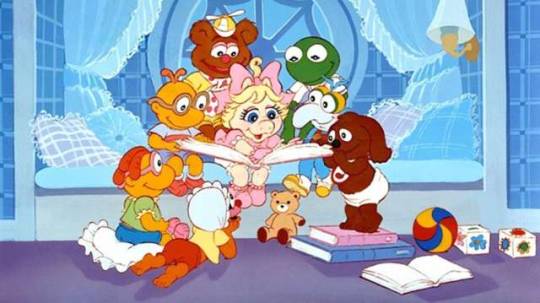
In the '80s and '90s, a lot of things were turned into cartoons. We saw a long list of animated shows based on live-action movies and more than a few that existed simply to sell toys. One interesting subgenre you might not remember, though, is when an animated series would age down an established set of fictional characters. All of a sudden, characters you were used to seeing as adults were portrayed as children on another show.
It happened more often than you may think and, honestly, some of the properties that did this to squeeze a little extra money out of their intellectual property may surprise you. At the end of the day, they all had something that made them entertaining enough to stick to the back of our minds.
Let's jump in the time machine and revisit 18 of the absolute best animated shows that age-flipped characters you knew and love--and maybe a couple you were downright terrified of. Also, make sure to check out our list of movies that were based on beloved cartoons. He-Man, eat your heart out.
1. The Tom and Jerry Kids Show
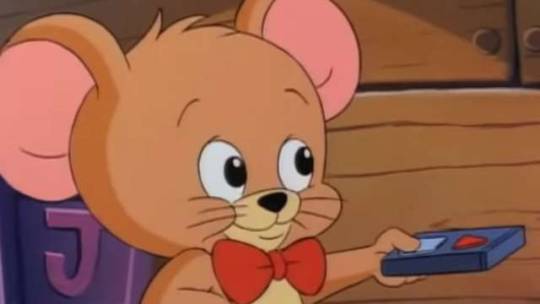
It's not that Tom and Jerry Kids was a bad show, it was actually pretty good. However, the most memorable thing about it is its fantastic theme song. The series also included a kid version of Droopy Dog, in addition to little Tom and Jerry.
2. Muppet Babies

This is easily the most beloved and iconic example of this trend. Jim Henson's Muppets were portrayed as babies when they became a cartoon--complete with onesies, baby talk, and a parental figure named Nanny that was only ever shown from the legs down. Muppet Babies is hands-down one of the best cartoons of the 1980s. What's more, the recent reboot on Disney Channel is also quite fun, even if it doesn't cast tiny versions of your favorite Muppets in movie franchises like Star Wars and Indiana Jones.
3. A Pup Named Scooby-Doo
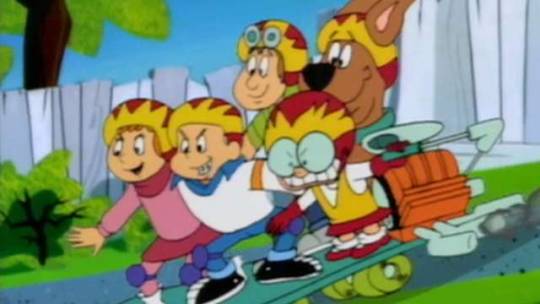
This was another show with a very memorable theme, though it's a confusing one. A Pup Named Scooby-Doo first debuted in 1988, and yet its theme sounds like a doo-wop song from the '50s. Regardless, this show is a blast as a young Scooby gang hunts monsters and solves mysteries, and of course, feeds the titular dog Scooby Snacks to keep him motivated.
4. Flintstone Kids
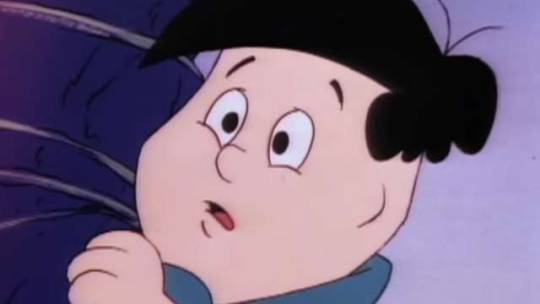
Flintstone Kids was good, but what makes this entry on the list special is the show-within-the-show. Captain Caveman and Son were shorts that aired as part of Flintstone Kids. Originally, Captain Caveman was a character that debuted in the 1977 animated series Captain Caveman and the Teen Angels. On Flintstone Kids, he teamed with his son Cavey Jr. to fight the forces of evil. As for the little Flintstone gang themselves, that part of the show was also very fun, though you might remember it most for the public service announcements that aired during the episodes.
5. Tiny Toon Adventures
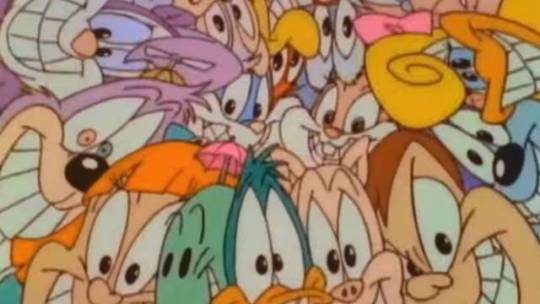
This one is, admittedly, a bit of a cheat. The kids on Tiny Toons weren't actually the kid versions of Bugs, Daffy, Taz, and the rest of the gang. It doesn't get much closer, though. Baby and Buster were clearly a younger take on the different sides of Bugs Bunny, while Plucky Duck has Daffy's temper, Dizzy was the spitting image of Taz, and Hampton was so close to Porky Pig it was scary. What's more, sometimes the classic Looney Tunes characters made appearances on Tiny Toons, seeing them team up with their younger proteges.
6. James Bond Jr.
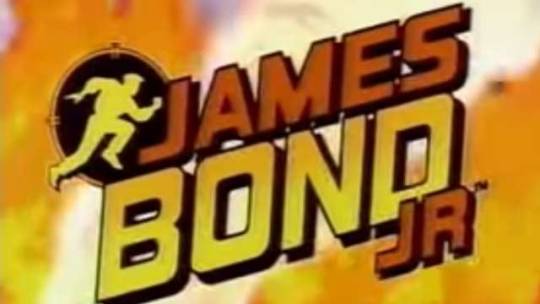
This is another one that sort of works, but only if you stretch the premise a bit. James Bond Jr. was the nephew of James Bond and a spy-in-training and, along with his prep school friends, was fighting the forces of evil just like his infamous uncle. What you may not know, though, is James Bond Jr. has his own novels. The Adventures of James Bond Junior 003½ was first released in 1967, written by an author under the pseudonym R. D. Mascott. Interestingly, the actual author of the book has never been officially revealed, though several names have been theorized.
7. Baby Looney Tunes
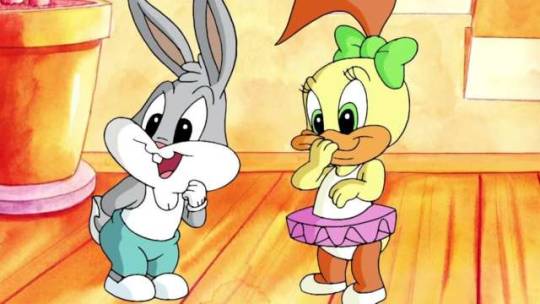
First debuting in 2001, this is a much newer series than Tiny Toons. What's more, it actually delivers what you might have been looking for in that show--this is the actual Looney Tunes characters as babies, in case the title of the series didn't hint at it enough. This series essentially Muppet Babies, but with Bugs Bunny and friends. What's not to love?
8. Yo Yogi!
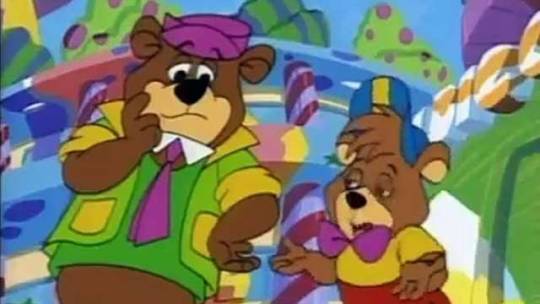
If you've actually heard of this one, congratulations. You're as nerdy as we are. Yo Yogi! debuted in 1991 and only lasted for 12 episodes. It was the most over-the-top version of the '90s you could expect, complete with a neon-colored makeover of Yogi's clothes. The series casts the bear and his pals--Boo-Boo, Snagglepuss, Huckleberry Hound, Cindy Bear--as 14-year-old crime fighters. What else would you expect these animated teen animals to be?
9. Jungle Cubs
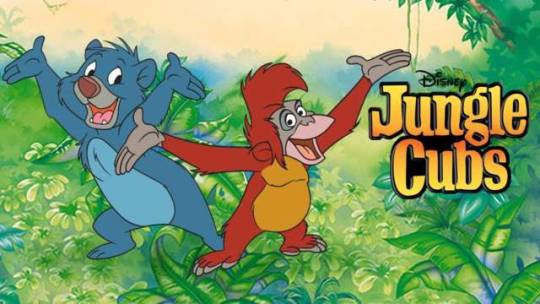
Yes, Disney's The Jungle Book for the kid treatment, even though the main character in the movie is already a kid. This version doesn't feature Mowgli at all. Instead, the animals are all kids, living it up in the jungle. They aren't crime fighters of ghostbusters or anything like that. Instead, they're just friends hanging out. Oh, and we have to mention the theme song, a hip-hop version of "The Bare Necessities."
10. Clifford's Puppy Days
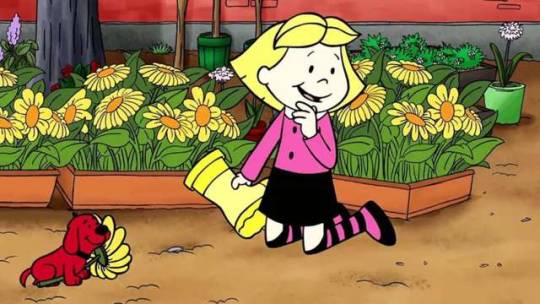
If you were a kid in the early-aughts, you might remember Clifford's Puppy Days. Before he was Clifford the Big Red Dog, he was Clifford the normal-sized puppy that wasn't a menace to keep and maintain.
11. The New Archies
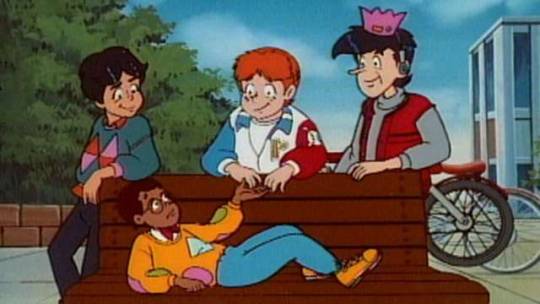
Before Riverdale turned Archie and his friends into a Twin Peeks-flavored murder party of teenage angst, The New Archies made them little kids. The gang is in junior high and, well, not much else has changed. It lasted 13 episodes and was still the incredibly wholesome Archie Comics you knew back then before it went full-CW.
12. Sabrina: The Animated Series
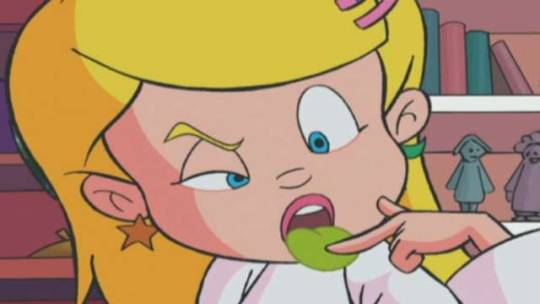
The animated Sabrina series was a spin-off of the live-action version starring Melissa Joan Hart and featured the titular teen as a 12-year-old. She was still learning her magical ways and getting into all sorts of trouble with her spells. In this series, Sabrina is voiced by Hart's little sister, Emily Hart. However, the original Sabrina does play a role, voicing Sabrina's aunts Hilda and Zelda.
13. Camp WWE
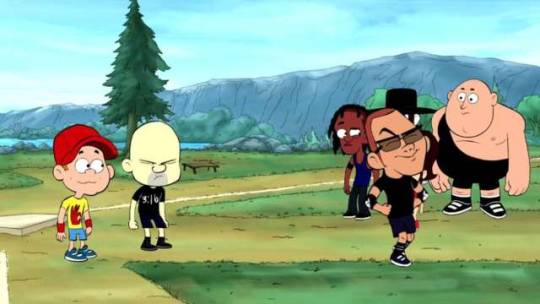
What if WWE did its own take on South Park? That's Camp WWE, an animated series that's definitely meant for adults. All of your favorite WWE superstars, including "Stone Cold" Steve Austin, The Rock, and The Undertaker, are little kids at a summer camp run by Vince McMahon, his teen daughter Stephania, and her boyfriend Triple H? That's all you need to know about WWE. It pokes fun at WWE and professional wrestling as a whole, is filled with more adult language than you'd find on Raw or Smackdown, and it actually one of the most entertaining WWE Network originals.
14. Ewoks
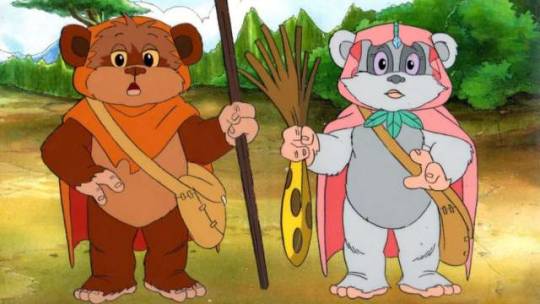
Yes, this is real. There's honestly no telling how old the Ewoks are in Return of the Jedi. But who cares? In this Star Wars animated series, viewers follow a younger version of Wicket and his friends before the events of A New Hope and, for some reason, they speak English now. Originally, this series aired with the half-hour show Droids for The Ewoks and Droids Adventure Hour, otherwise known as the coolest one-hour block of TV you'll ever experience.
15. Iron Man: Armored Adventures
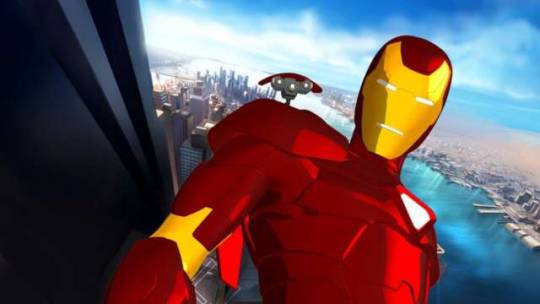
This is the most recent series on the list, but need to be pointed out. Iron Man: Armored Adventures followed Tony Stark as a teen Iron Man, alongside a similarly-aged Pepper Potts and Rhodey. If you thought Stark might have less of an ego as a teenager, guess again. Still, this take on Iron Man was entertaining and it managed to introduce a long list of popular Marvel characters--from Black Panther to MODOK.
16. The Mini-Monsters
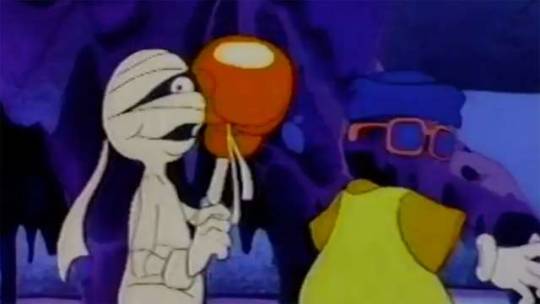
So, The Mini-Monsters wasn't a show. It was, however, a segment within the animated series The Comic Strip. The segment featured the children of the classic Universal monsters, including Frankenstein's son Franky and the Invisible Man's son Blanko. It's utterly ridiculous, with a premise of a pair of siblings (one of which is voiced by Seth Green) being sent to a summer camp filled with the children of actual horror villains for a year. This is the oddest entry on the list, but one of the best.
17. The Pebbles and Bamm-Bamm Show

While this is a list of cartoons that turned adult characters into children, it didn't always work out that way. In some cases, the process goes backward, and this is a perfect example of that. On The Flintstones, Pebbles and Bamm-Bamm were the kids of Fred and Barney, respectively. That series ended in 1966, though, with The Pebbles and Bamm-Bamm Show following in 1971. In that series, the two titular characters were teenagers, attending high school together and starting a band. What was the band called, you ask? The Bedrock Rockers. This sequel series only lasted 16 episodes, but it remains a cool idea that most cartoons won't dare touch. Bart Simpson has been in elementary school for three decades, and chances are that won't be changing anytime soon.
18. All Grown Up
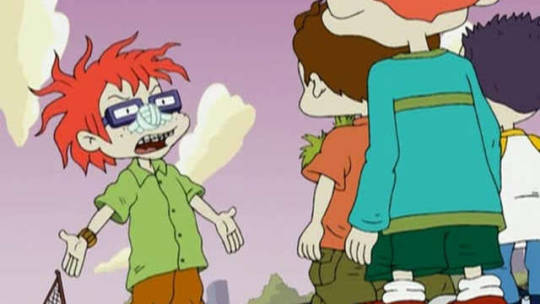
This series also aged up popular baby characters. All Grown Up revisited the world of Rugrats. This time, though, Tommy Pickles and his friends were preteens and had more fleshed out personalities. It lasted five seasons on Nickelodeon, airing between 2003 and 2008.
from GameSpot - All Content https://ift.tt/2ZG6o5a
3 notes
·
View notes
Text
I want to talk about Jim Hopper and it’s my blog and I will talk about him!!!
Season one and Season two Hopper were peak Hopper! That is a GOOD, GOOD character. I am loathe to give the idiot brothers credit for him, he’s that good. I think a lot of this comes from David Harbour and how much love and detail and emotion he puts into Hopper but I guess there was some good writing too. I’m too salty to give them more than that and you can take that with a GRAIN OF MY SALT.
Anyway, I miss the Hopper who wrote the letter in season 3. That was season 1 Hopper. That was the Hopper who loved his daughter more than the world, the Hopper who still wears her hair tie on his wrist, the Hopper who risked his career and his life to save a missing boy and protect him and his family! Hopper has never been the BIG JEALOUS SCREAMING MAN that he was written as in season 3!! He’s jut not. That’s stupid.
Hopper raises his voice so few times in season 1!!! SO FEW. And season 3 he’s suddenly screaming left and right, he’s lying to the people he loves, he’s threatening a CHILD!!!!! so badly that he’s afraid for his life (and it’s played off as comedy), he berates Joyce for talking to other men, belittles Joyce, calls her crazy!!! And it’s all played for laughs and, disgustingly enough, romantic purposes!! It’s all some big joke and it’s not funny. This is a common 80s archetype! It’s a common trope to have two people bickering become lovers but that’s never been Hopper’s character and it’s certainly never been part of Hopper and Joyce’s relationship to that extent!
Here’s where I say I do ship Jopper, or rather I ship my own...AU version of them where season 3 Hopper and Joyce don’t exist within whatever narrative that they were forced into and I’m full of joy.
And here’s the part where I admit that it’s almost 5am, I’m half asleep, I’ve cried 5 times in the past 3 hours, and I’m full of feelings I can’t quite explain so if this is all a mess well...tbh I expect nothing else and you shouldn’t either at this point, dear reader. Here are the sparknotes:
1. Jopper. Platonic or romantic! Jopper worked because of their relationship. How about a little trust? They trust one another and they’re there for each other now out of an earlier spawned friendship that has become something more. (Be that BFFS or lovers whatever you want I don’t care) They’ve always had disagreements but they’ve never stemmed from Joyce speaking to other men (Hopper may have ribbed her about Bob but he never screamed at her for talking to him. He never, ever showed signs of being this aggressive or possessive and it’s frankly disgusting!!! That in 2016-2020-whatever we’re still being fed this archetype as a character we’re supposed to root for!! I won’t do it, I just won’t. It’s not Hopper as he was. Do you expect me to believe his personality did this 360 because...what? He has a teenage daughter? No. Not gonna fall for that, chief. He’s been gentle with Joyce, patient and after all she’s been through she deserves that!! She deserves someone who will just be there for her and I wanted him to be that person! I wanted them to overcome together. Because they’ve been through hell. But then you have lines about her needing to get over it?? Bob died approximately 8 months ago, her husband was abusive towards her and her sons, Will was kidnapped and then possessed, Jonathan has suffered through all of it and Joyce has held it all together as best she can. She finally reached out and the Duffer Brothers decided that women aren’t allowed to be happy and Bob was killed in front of her and we have Hopper saying “God forbid we move on” or whatever I can’t be assed to look that up it’s 5am I’m not going to. Like, Hopper would never, you’re wrong. I miss the Hopper who argued stupid things with Joyce but who treated her with some fucking respect. I’m soft for him on the ground beside her at all times or just holding her like give me my man back. Give me him.
2. Eleven. Hopper and Eleven have always had a weird relationship. She’s been through so much it’s too be expected and I loved how they interacted! Even when they’re fighting! But him doing something so gross and underhanded as threatening Mike like he did after freaking him out!!!! over his grandma!!! was wrong. Watching this with several audiences I’ve noticed that the people who found this funny were, in fact, Boomer dads with daughters who no doubt relate to this archetype. They’re also white republicans who hate when you talk about taking away their guns so go off, I guess. No but what I’m trying to say is that I think this Hopper was clearly written for another generation. This Hopper was written to appease Boomers who already loved him so I don’t really know why the change was necessary but it happened. And I’m so mad I’m full of vegan eggs because that’s what I had for dinner I hate eggs, fun fact I’m not vegan. I would have loved to see Hopper be a dad to Eleven, to see more of their relationship growing instead of...whatever we got. The season was really all over the place. A mess. 0/10
3. What. I’m so tired but I wanted to make my points before I pass out and forget them!! Hopper’s sudden rage is so confusing?? Like he’s just mad...all the time. Which, again, I think plays into that whole 80s dad-boy. Like a bad boy but a dad. I’m trademarking that. It was like he was changed to fit the narrative rather than him growing to fit it, rather than there being any reason for the change and it kills me because he was on such a good path. He was growing and they took him and shoved him into a pit that he may never crawl out of. It left me hoping that Hopper was really dead at the end and that killed me. Because I’ve spent all this time loving him and now I just...don’t. And it’s not like it was good writing to make me dislike a character so far as them being a villain or bad within the narrative. They just made me wish he would die so I wouldn’t have to deal with another aggressive angry man who tried to intimidate everyone into getting what he wanted as a protagonist. Maybe that’s because men like that are among my biggest fears and I’ve been treated how he treats people before by men like season 3 Hopper. I can’t laugh or enjoy him because I’ve seen people like him doing those things and I know it’s dangerous. And also because it’s not Hopper. I know Hopper has never been a “by the book” guy! He’s a rule breaker, he IS violent but it’s always been for a greater good. I’m not saying that’s a GOOD thing but it worked within the story. He one punched the bad guys and we were on his side. Now he’s just...screaming in the face of his allies, he’s hurting them and we see them react...positively for the most part. Sure we have Joyce shouting at him but the whole narrative is that she’s falling for him, that she’ll end up with him no matter how he treats her because that’s love. And it hurts to see him reduced to that.
In conclusion, I love Hopper. Or rather, I love the Hopper in my head that exists in a place where Stranger Things was cancelled after season 2. I’m just sad and emotional and I don’t understand why this was ever a thing that needed to happen.
#stranger things#hopper#jim hopper#just fuck me up#i can't stop thinking about this man and how much i love him why did they do him dirty let me live
7 notes
·
View notes
Text
A God that rapes human beings, and even delights in the act, is not a God that is worthy of any worship. via /r/atheism
Submitted July 20, 2020 at 05:39PM by MelodicEarth2
(Via reddit https://ift.tt/2ZKHnGr)
A God that rapes human beings, and even delights in the act, is not a God that is worthy of any worship.
"I [God] will gather all the nations to Jerusalem to fight against it; the city will be captured, the houses ransacked, and the women raped." (Zechariah 14:2)
"Does disaster come to a city unless the LORD has done it?" (Amos 3:6)
Raping women by conquering lands is a very corrupt human behavior throughout history, a very scary and disgusting human behavior indeed. Read about the Red Army, how those whom the armies conquered had raped all the women ages 8 to 80, forcing themselves into their bodies. Try reading the diaries of the women who were raped. And you do realize little girls were raped as a result of God's decree as well right? The soldiers partaking in the Red Army invasions were told not to do such things, but they still engaged in those evil acts. Imagine when God sets your heart to conquer a land, how much more atrocious and uninhibited your actions would be to those women, those little girls? In their eyes they were nothing but meat supplied by God. And Jesus caused it all. The mothers tried to kill themselves along with their daughters to escape this fate of being mass raped.
Why is the Bible immoral? Well, we see the evil of human beings, how they rape children and women whom they conquer in war. The victims of these rapes, lets say they go to the Bible for comfort, surely, the great God, the righteous judge of all the earth must have an answer to these sort of things? Surely God would never condone, never act in such a way that these vile men during the Red Scare did, right? And she opens the Bible and what does she read?
She reads that God does the exact same thing, and delights in it-- the rape of women.
The LORD does whatever pleases him, in the heavens and on the earth" (Psalm 135:6).
God did not regret this action, rather, it was a judgement, and the Bible tells us:
“Yes, Lord God the Almighty, true and just are your judgments!” (Revelation 16:7)
We are to celebrate his judgements.
A God that does this to human beings doesn't deserve any persons' worship. The question is not whether God exists or not, the question is, would a moral man worship an immoral God? The answer is yes. They will, just as moral men blindly followed Hitler, while he baked Jews in the ovens -- all the while God burns those who disagree with him in Hell.
Women have felt the pain of rape because of Jesus Christ. Christians shouldn't go telling people that Jesus loves them without telling them that Jesus also used human beings to cause pain and suffering to others. Like playthings. A Christian is telling people that a rapist is loving, or even worse, hiding the fact that this god is a rapist, and imploring others to believe in him.
Jesus in the New Testament admits that he is the God of the Old Testament, "Before Abraham was, I Am", which of course is God's name, the Tetragrammaton, YHWH. So he just admitted that he is the God which made mount Sinai smoke and shake. Also, John tells us in the New Testament that the vision of God which Isaiah saw in the Old Testament was in fact Jesus Christ, indicating again the God of the New Testament, Jesus Christ, was the one that had these girls raped. It's his own confession. In addition, the Biblical concept of God is a Trinity. This means that when God rained down rocks and fire upon Sodom and Gomorrah, Jesus was not absent, nor was he opposed to the act. Rather he was there, with Father and Holy Spirit all in unison making the act happen. This is the same with every other case of God's atrocities in the Old Testament, whether it is rape or murder.
Here is the answer to why God treats human beings in the way that he does:
"When a potter makes jars out of clay, doesn’t he have a right to use the same lump of clay to make one jar for honorable use and another to throw garbage into? (Romans 9:21)
God looks at many human beings as trash. That's why he can mercilessly drown us, burn us, toy with us, rape us. God looks at humanity in this way, he created them so that's why he tortures them like a child torturing a pet. That's why in the Bible God specifically ordered the kidnap and rape of women. God is worse than the most wicked of men. But Christians share this same mentality, they look at human beings as trash -- wicked, sinners, they even look at themselves in that manner. We can talk all day about the follies and so called sins of human beings, but all this from a God that is worse than any devil or man. It is an immoral burden to place upon people. In the passage you read in Zechariah, God is the one bringing the evil and the good, again, playing with human lives as he sees fit. So what if there is rape and murder as a result of your toying with man?
We can throw away our own reasoning and say man can't decide morality for themselves. But I'll tell you this, it isn't to be decided by this God. We look at God as the one that decides what morality is and isn't, yet his actions are contrary to what is stated of him in the Bible, "Will not the judge of all the earth do that which is just?" A 6 year old knows that these acts are evil. The human spirit knows what evil is.
"Thus says the LORD, ‘Behold, I will raise up evil against you out of your own house. And I will take your wives before your eyes and give them to your neighbor, and he shall lie with your wives in broad day light." (2 Sam. 12:11)
God is angry with David for killing a husband and raping the wife. Did God stop the killing and rape? Nope. God sat by and watched, doing nothing. God decides to punish David and one of the punishments is to take David’s wives and allow them to be raped. Um…what…the…heck?!?! The women get raped. That’s David’s punishment. This is God. He’s supposed to be all-knowing. How is it not possible that part of that all-knowing does not involve coming up with a punishment that doesn’t punish the innocent? This leads us to 3 options, and only 3 options. Either God is truly stupid and thus immoral, or there is no God, or God is immoral while not being stupid-- which amplifies his immorality to an even greater degree.
What is the nature of the sexual act contemplated in Deut. 21:10-14?:
"When you go forth to war against your enemies, and the Lord your God has delivered them into your hands, and you have taken them captive, And you see among the captives a beautiful woman, and desire her, and take her for a wife -Then you shall bring her home to your house, and she shall shave her head and do her nails, And she shall remove the garment of her captivity from her, and remain in your house and weep for her father and mother a for month, and after that you may approach her and have intercourse with her, and she shall be your wife. And if you do not want her, you shall send her out on her own; you shall not sell her at all for money, you shall not treat her as a slave, because you "violated" her."
We shall focus on the expression "violated her," 'initah in Hebrew, from the root 'anah. It is in the translation of this word that an attitudinal difference between the Targumim becomes apparent. In 2 Samuel 13;11-14, the story of Amnon and Tamar, the root 'anah is used twice: "do not violate me," and then "he overpowered her, he violated her, and he lay with her." If we understand "and he lay with her" to mean "and he had intercourse with her," we may understand from the juxtaposition of the two concepts that 'anah can be considered sexual violence. That is, in this instance the use of 'anah together with "had intercourse" seems to imply actual rape.
This seems to be the case as well in Gen.34:2, the story of Dinah and Shechem. There the text says: "He [Shechem] took her, and he lay with [had intercourse] with her and he violated her [vaye'anehah]." 'Anah alone would not mean necessarily rape, but simply sexual violence of some sort. Rape is again implied here by the use of 'anah and "had intercourse" together.
The idea of rape may also be expressed with other terminology. In Deuteronomy 22:25, 28 we find the verb "had intercourse" used with the verbs "took hold of," "grabbed", to imply the idea of forced intercourse i.e. rape. The verb 'anah is used alone in Lamentations 5:11, Ezekiel 22:10, and Judges 19:25, and from the context in these instances seems to imply rape.
We must recognize, however, that though it is important to determine what is meant by 'anah in Deuteronomy 21:14, rape is only one way of exerting sexual violence. Clearly sexual violence is conveyed in all the quoted instances where 'anah is used. Thus although there is no specific mention of rape in Deuteronomy 21:14, the word 'initah implies that the woman's consent (if any) to intercourse was due to her circumstances.
The expression 'initah is particularly poignant, a point that seems to have been recognized in both the Onqelos and Neophyti Targums. Onqelos actually uses the root 'anah in his translation, while Neophyti 1 has "you have exercised your power/authority [reshut] over her." Targum Pseudo-Jonathan, on the other hand, considers 'anah to be only actual intercourse, translating with the verb shamash, and thus failing to transmit the Bible's sensitivity to the captive's powerlessness.
Numbers 31: 17-18
17 "Now therefore, kill every male among the little ones, and kill every woman who has known a man intimately. 18 "But keep alive for yourselves all the young girls who have not known a man intimately.
So what do you think God/Moses, or whomever had in mind; sweet-talk and flirt with the young girls? These sex deprived 50 year old, 30 year old, 25 year old guys hitting on these children and teenagers?
The texts says Israelite warriors are commanded to kill everyone except young virgin women, whom they are permitted to keep for themselves.
Men. Capturing women. Capturing young women. Capturing virgin young women.
It's incredibly obvious what it's saying.
The mere idea of the God of heaven ordering the death of women and innocent children so outraged Thomas Paine that he said such a scenario was sufficient evidence in and of itself to cause him to reject the divine origin of the Bible (1795, p. 90). In fact, he condemned the Bible for its moral atrocities, and even went so far as to blame the Bible for virtually every moral injustice ever committed. He wrote:
Whence arose the horrid assassinations of whole nations of men, women, and infants, with which the Bible is filled; and the bloody persecutions, and tortures unto death and religious wars, that since that time have laid Europe in blood and ashes; whence arose they, but from this impious thing called revealed religion, and this monstrous belief that God has spoken to man? (p. 185).
As you read the Bible,
You suddenly notice the children of Israel are precisely all the time being ordered to covet. Being enjoined to covet, being told they must envy and hope to annex the lands, the animals and the women of neighboring tribes. They kept going by greed. By the thought that soon, all these peoples properties shall be ours. And that we'll be licensed to take it by force, and kill them and have the land but not their people. This is perhaps why there are no prohibitions against, say, slavery, rape, genocide, or child abuse in the 10 Commandments.
It's not a matter of leaving these out or applying situational ethics to a time that was not ours. It's not that. Such things have always been known of and usually deplored. It's more I fear that such terrible things as rape, enslavement, genocide and child abuse, were just about to be mandatory during this time. They're just about to be forced on people as things they must do if a conquest was to continue,
1 note
·
View note
Photo


In the Time of Dragon Moon || Janet Lee Carey || Wilde Island Chronicles #3 || 480 pages
-----------------------------------------------------------------------------------------
Top 3 Genres: Fantasy / Young Adult / Dragons
Synopsis: On the southernmost tip of Wilde Island--far from the Dragonswood sanctuary and the Pendragon Castle--live the native Euit people. Uma, who is half Euit and half English, and not fully accepted by her tribe, wants to become a healer like her Euit father. But the mad English queen in the north, desperate for another child, kidnaps Uma and her father and demands that he cure her barrenness. After her father dies, Uma must ensure that the queen is with child by the time of the Dragon Moon, or be burned at the stake.
Terrified and alone, Uma reaches out to her only possible ally: the king's nephew Jackrun, a fiery dragonrider with dragon, fairy, and human blood. Together, they must navigate through a sea of untold secrets, unveil a dark plot spawned long ago in Dragonswood, and find a way to accept all the elements--Euit, English, dragon, and fairy--that make them who they are.
Finished: February ??nd, 2020.
Progress: 8 / 10. 80% complete.
My Rating: ★★★☆☆. [3/5]
My Review: [Under the read more - NOT SPOILER FREE]
First things first: big TW for sexual assault, attempted rape and victim blaming in the first half of the book.
I have very mixed feelings about this book, and I have to say, generally it was a disappointment. I went into it with VERY high hopes from the last book, but I didn’t like this one anywhere near as much.
I absolutely loved the main theme of English oppression of the natives, and the real-world connotations that represents. I also deeply enjoyed the underlying message of female power, and of not being ashamed of being a woman.
But just.. I feel like there were so many missed opportunities, and a lot of loose ends and dropped balls. Like.. I don’t believe the Tess of the last book would have been as strict and shaming of Jackrun’s dragon fire as she is said to be. Jackrun’s temper really isn’t the best, and he takes it out on Uma a lot without much in the way of apology. Uma is left to figure out her femaleness entirely on her own, with no one to really directly address it with her – which brings up the topic that gender is VERY binary here. Uma herself seems to be more fluid, fighting with two halves of herself – one masculine, one feminine – but what doesn’t sit well with me is that the aspects must be defined as one way or another at all, such as a more personal healing touch is something only a woman can give and understand. Gender roles are really still very strictly defined, and especially when painted under the guise of lady power and gender fluidity, it really didn’t sit well with me.
The female rage coming from Tanya after she was found out is entirely understandable, and I genuinely felt for her. I’ll admit, I was very glad she managed to kill Desmond and the Queen before she was discovered, cause the both of them were COMPLETE dumpster fires and quite frankly deserved it. That much was very satisfying. But of course, she is to be executed for the crimes of murder, and never once does the King admit what pieces of shit his wife and son were. He won’t even let Tanya speak ill of his son, regardless of the fact that his kid tried to rape Uma. Ultimately, I felt bad that Tanya had to be punished at all.
I know this is historical fantasy and all that, but… fantasy. It’s FANTASY. You don’t have to include some things. Like the sexual assault. And the isolation and victim blaming that comes from it. And the fact that Uma never really did have what was done to her acknowledged. And the king and Bianca – Tanya’s daughter, a TEENAGER – marrying a year after the queen’s death. Yeah. Ew. It was painted in a very mutually consensual light, but… no.
I also feel like the idea of “being womanly” or femininity in general was overall painted as being very shameful, and you had to prove yourself “masculine” or “neutral” enough to be seen with any kind of respect. No one really seemed to respect the feminine on its own.
And really, the aesthetic I loved so much in the last book really didn’t have much play in this book. It was still there, especially when the Fey were present and when Uma was in the Dragonswood, but not as much as I wanted it to be.
Also, I really don’t like Uma’s father. At all. Or much of her tribe. Most of them seemed like grade-A sexist assholes.
I am grateful for Jackrun, though. Aside from his temper, I was glad he existed. He’s respectful and kind and considerate, and behaves as a true ally should – and even left everything he ever knew to live with Uma once she decided to return home. A male character doing that for a female character is very rare, and is a pleasant change.
There are so many more little things I don’t remember, but overall, while certain parts of this book left me feeling very excited and happy and satisfied, others… nowhere near as much. There was enough that left me feeling dissatisfied and like “wait, no, that’s not done right,” that it persevered after finishing the book and left me feeling like I couldn’t possibly rate it any more than a three. So much of it felt like attempted cliché subverting, but ended up… kind of playing right into the aspects that make them problematic in the first place.
The characters, the character growth, and the world building I absolutely adore – the world building especially. I’d LOVE more books set in this world. But this one is the last one…and that leaves me feeling very sad. This book being the last one for this setting feels very much like a disservice to its potential.
But, alas. I’ll just keep talking in circles if I keep going, so I’m gonna cut myself off here. This book and this series is done – on to the next one!
#book reviews#in the time of dragon moon#janet lee carey#wilde island chronicles#★★★#fantasy#young adult#dragons#romance#magic#faeries#library book#print book#series book#jomp original
2 notes
·
View notes